We have all had headaches, but if you feel this one is the worst, it probably is a migraine attack. Migraine symptoms start slow and gradually increase in intensity, giving you a headache so intense on one side of the head that it makes you want to throw up. Many people believe that a migraine is just a headache when in reality, it has many other symptoms. Migraine can give you nausea, vomiting, fatigue, etc. Did you know that almost half of the adult population suffers from migraine, and women are three times more likely to experience migraine1? Fortunately, like every problem that comes with a solution, there is a multitude of solutions for migraine. Your search for home remedies for migraine ends here.
With some herbs and lifestyle changes, you might be able to manage migraine symptoms at home. However, do not use these herbs and remedies as an alternative to modern medicine. Talk to your doctor if your symptoms don’t improve using home remedies.
Did you know?
Many factors may trigger a migraine. These triggers differ from person to person. Some of the triggers are:
Migraines can be debilitating and affect one’s quality of life and ability to do daily activities such as work. Many people take painkillers for an immediate reduction in pain; however, home remedies, though slow to work, are a better option.
Dr. M.G. Kartheeka, MBBS, MD(Pediatrics)
The primary symptom of migraine is a throbbing or pounding headache that can progress to mild, medium or severe1. Other common symptoms include:
These are some common kitchen ingredients that you may use as remedies to relieve migraine symptoms at home.
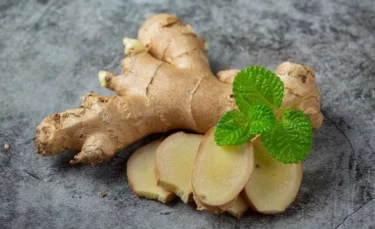
Ginger has been proven effective in preventing and managing migraine symptoms in a clinical study3 conducted by Mehdi et al. in 2014. Ginger contains many phytochemicals that might be responsible for effectively managing headaches4. You can make some ginger tea to relieve migraine symptoms. To make ginger tea, boil some freshly crushed ginger rhizome in water. Let it simmer for some time, strain it and your ginger tea is ready to serve.

Herbs like tea, coffee and guarana berries contain plenty of caffeine. Caffeine may be a double-edged sword, as it may relieve or trigger migraine symptoms. You are advised to use caffeine with caution5. Introducing caffeine in small amounts may be the best choice for you.
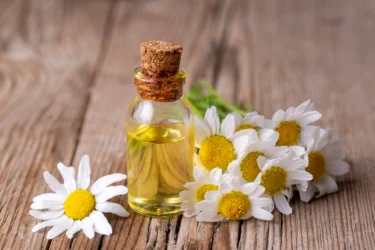
Aromatherapy with chamomile oil may help manage migraine symptoms. Chamomile may also help with nausea, a common migraine symptom. To use chamomile for migraines, take some chamomile oil, heat it and inhale the vapours using a vaporizer5. You can also make a cup of chamomile tea by boiling chamomile tea leaves in water. Strain it in a cup. Honey can be added for taste. And your chamomile tea is ready to drink.
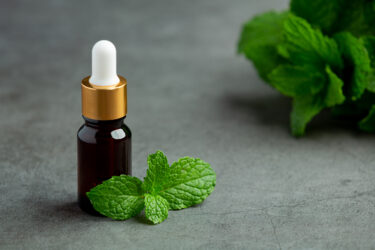
Peppermint oil, vapours and extract have shown benefits in migraine. Peppermint may help you relieve headaches during migraine. To use peppermint oil, you can heat some oil and inhale the vapours using the vaporizer5. Peppermint tea can be made by boiling peppermint leaves in water. Let the mixture simmer for some time. Pour the peppermint tea into a cup.
Here are some lifestyle changes to help prevent and relieve migraine symptoms.

You need to drink plenty of water to prevent dehydration, especially if you have vomited because of a migraine. In addition, drinking water may help manage the headache caused due to dehydration. You can also try drinking fluids other than water, such as juices and soups1,6. Make sure to steer clear of any liquid that might trigger your migraine.

You can try resting in a quiet and dark room to relieve migraine. Moreover, you might want to catch up on some sleep while resting6. This will help you cope with the migraine symptoms and wake up refreshed and relaxed.

Trying some relaxation techniques may help you reduce stress. You can try relaxing techniques like yoga, massage, mindful breathing, meditation and exercise. You may also try placing a damp towel or cool cloth over your head1,6.

You need to avoid any triggers that might be causing your migraines. Some common triggers that you can look out for are
These are some common triggers. However, you must keep track of your migraines to understand the cause and triggers. You can take help from a healthcare provider to identify triggers.
Though some studies show the benefits of the given herb and home remedies for migraine, these are insufficient. There is a need for large-scale human research to find the extent of the benefits of these home remedies on human health. Thus, these should only be taken cautiously and never as a substitute for medical treatment.
Also Read: Best Home Remedies For Hypertension By Dr. Rajeev Singh
If the headache is unbearable and does not relieve after several hours, it is best to consult a doctor for help. It can be accompanied by:
Reach out to your healthcare provider immediately.
You must not rely solely on home remedies for migraine treatment at home. You should consult a qualified doctor for any advice for the condition if the symptoms do not improve with home remedies.
Also Read: Home Remedies For Headache By Dr. Siddharth Gupta
Migraine attacks can make life difficult. The throbbing and pounding headache can make it nearly impossible for you to carry out your daily routine. There are some herbs and remedies that you can use to ease the symptoms and cope better. Herbs like ginger, tea, coffee, chamomile and peppermint have few pieces of evidence where they have effectively managed migraine symptoms. Therefore, they may be used as natural remedies for migraines. Unfortunately, a migraine headache can indicate an underlying health condition which needs a doctor visit. Therefore, contact your healthcare provider immediately if you experience a headache that is unbearable coupled with difficulty speaking and balancing, mental confusion and vision problems.
Also Read: Effective Home Remedies for Red Eyes
Some home remedies for migraines are chamomile, peppermint, tea, coffee and ginger. These herbs may be used at home to take care of a migraine. Making some lifestyle changes might also help you help with symptoms. Trying out relaxation techniques like yoga, meditation, and mindful breathing are some ways to reduce the stress that can trigger migraine. Drinking plenty of water and resting are simple and quick ways to help you manage your symptoms1,4,6. However, you are advised not to rely on home remedies alone to treat migraine. Make sure you consult your doctor or healthcare provider if you experience migraine symptoms.
There is some evidence reporting the use of caffeine in migraines. However, coffee can also induce a migraine in some people5. Therefore, you are advised to use coffee cautiously. Also, do not rely solely on herbal remedies to manage your symptoms. Seek medical help immediately if your migraine symptoms don’t improve.
Regular exercise, relaxation techniques like yoga and meditation, sufficient sleep and good water intake may help prevent migraine headaches. Maintaining a diary of your migraine attacks, including possible triggers and causes, may help you manage your symptoms better1. You can also take help from your healthcare provider as they will be able to help you identify the triggers better.
Yes, 3 out of every 4 people who have migraine are women. Women between the ages of 20 to 45 are more prone to migraine headaches7.
1. Migraine Headaches: Causes, Treatment & Symptoms [Internet]. [cited 2022 Jul 21]. Available from: https://my.clevelandclinic.org/health/diseases/5005-migraine-headaches
2. Migraine. MedlinePlus [Internet]. [cited 2022 Jul 21]. Available from: https://medlineplus.gov/migraine.html
3. Maghbooli M, Golipour F, Moghimi Esfandabadi A, Yousefi M. Comparison between the efficacy of ginger and sumatriptan in the ablative treatment of the common migraine. Phytother Res [Internet]. 2014 [cited 2022 Aug 23];28(3):412–5. Available from: https://pubmed.ncbi.nlm.nih.gov/23657930/
4. Yarnell Eric. Herbal Medicine and Migraine. https://home.liebertpub.com/act [Internet]. 2017 Oct 1 [cited 2022 Jul 21];23(5):192–201. Available from: https://www.liebertpub.com/doi/10.1089/act.2017.29131.eya
5. Levin M. Herbal treatment of headache. Headache [Internet]. 2012 [cited 2022 Jul 13];52 Suppl 2:76–80. Available from: https://pubmed.ncbi.nlm.nih.gov/23030536/
6. Migraine. Office on Women’s Health [Internet]. [cited 2022 Jul 22]. Available from: https://www.womenshealth.gov/a-z-topics/migraine
7. Rossi MF, Tumminello A, Marconi M, Gualano MR, Santoro PE, Malorni W, Moscato U. Sex and gender differences in migraines: a narrative review. Neurol Sci. 2022 Sep;43(9):5729-5734. doi: 10.1007/s10072-022-06178-6. Epub 2022 Jun 8. PMID: 35676560; PMCID: PMC9176156. Available from: https://pmc.ncbi.nlm.nih.gov/articles/PMC9176156/
Disclaimer: The information provided here is for educational/awareness purposes only and is not intended to be a substitute for medical treatment by a healthcare professional and should not be relied upon to diagnose or treat any medical condition. The reader should consult a registered medical practitioner to determine the appropriateness of the information and before consuming any medication. PharmEasy does not provide any guarantee or warranty (express or implied) regarding the accuracy, adequacy, completeness, legality, reliability or usefulness of the information; and disclaims any liability arising thereof.
Links and product recommendations in the information provided here are advertisements of third-party products available on the website. PharmEasy does not make any representation on the accuracy or suitability of such products/services. Advertisements do not influence the editorial decisions or content. The information in this blog is subject to change without notice. The authors and administrators reserve the right to modify, add, or remove content without notification. It is your responsibility to review this disclaimer regularly for any changes.
Everyone wants a perfect smile. Your smile expresses your emotions. Yellow, discoloured or stained teeth prevent you from smiling as they make you feel self-conscious. However, do not worry, as you are not alone. Teeth staining is a common problem experienced by millions of people. Stains in teeth can be superficial (extrinsic) or deep (intrinsic). Here, we will be talking about only superficial tooth discolouration.
Staining of teeth can be treated by teeth whitening procedures. Procedures can include teeth whitening done by dental professionals and teeth whitening remedies at home1.
Teeth whitening is a bleaching process to remove the yellow colour of teeth. Bleaching may also make the enamel whiter and more reflective. Teeth whitening products include chemicals like carbamide and hydrogen peroxide, which only dental professionals are certified to use. These techniques might be expensive as well as damaging to the teeth2.
In this blog, we bring you the natural ways to whiten your teeth. For this, you may use certain fruits and other ingredients readily available in your kitchen. So, continue reading to find the home remedies for teeth whitening.
Teeth discolouration may be caused due to:
Trauma or injury to teeth results in deeper stains which cannot be treated by teeth whitening.
The following signs may be observed:
Simple kitchen ingredients offer several natural ways to make teeth white at home.
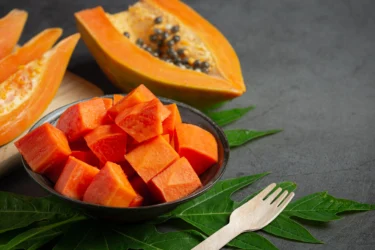
Raw papaya might be a good bleaching agent because it contains papain and chymopapain enzymes. These enzymes are found in unripe papaya more than in ripe papaya. Papain enzyme may be able to remove the superficial stains of the teeth and reduce the plaque development in the teeth4,5.
You may use unripe papaya as a home remedy for teeth whitening. Wash the papaya and remove the peel and seeds. Blend the flesh into a blender. Squeeze the pulp using a mesh cloth and use the juice obtained with hydrogen peroxide as a mouth rinse to bleach your teeth. Unripe papaya might be used as a non-abrasive (mild) whitening agent5.
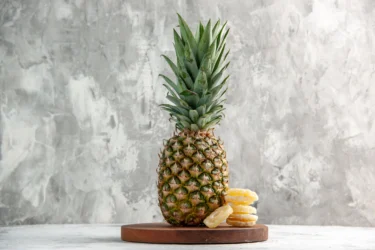
Pineapple contains an enzyme called bromelain. It may act as a natural stain remover. It may help remove the dental plaque build-up and the superficial stains of the teeth4.
Pineapple may be used for teeth stain removal at home. You may eat pineapple as a raw fruit or may be used it to prepare pineapple juice. To make pineapple juice, wash it thoroughly with water, remove the peel and chop it into small pieces. Take half volume of water into the blending jar and add the chopped pineapple. Blend until a smooth puree is formed strain and discard the pulp and use the juice. Add ice cubes and a pinch of salt and sugar if needed.
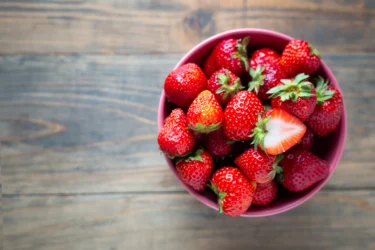
Strawberries contain malic acid, which might be a natural teeth enamel whitener. It may have anti-cariogenic properties (may reduce tooth decay). It may also increase saliva production4. Crush one or two strawberries to make a puree, add half a teaspoon of baking soda and mix well. Apply this mixture to your teeth, let it sit for a while and rinse it off before brushing with your regular toothpaste.
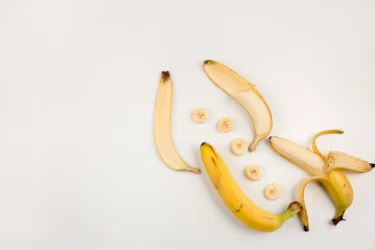
We all eat bananas and throw away the peel. Those peels are loaded with essential minerals like magnesium, manganese and potassium. These minerals get absorbed into tooth surface, making them appear white4. So, before throwing away banana peels, use them to whiten your teeth.
You may rub your teeth with the underside of the banana peel. Once rubbed, allow it to sit for at least ten minutes. Next, take a fresh dry toothbrush and work on your teeth. Once done, brush out the peel and do your regular brushing using toothpaste. Do this routine and observe the results.
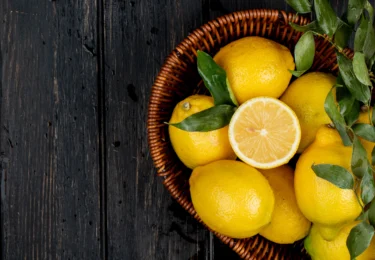
Lemon extract and peels may be used for teeth whitening. They contain a high amount of citric acid, which may have a bleaching action. Lemons may also have antibacterial properties that might help in reducing dental plaques4.
You may use lemons in two ways rubbing lemon peel onto the stained teeth, and squirting the lemon juice on the discoloured teeth.
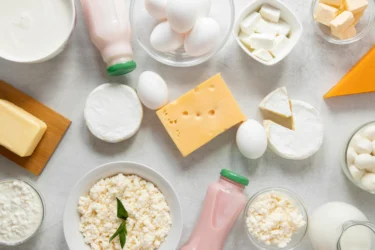
Dairy products might act as a natural enamel whitener. Milk, cheese, yoghurt, etc., are good sources of lactic acid and might be useful for destaining the teeth and increasing saliva production in the mouth4. Thus, dairy products might be effective home remedies to whiten your teeth. So, do not skip your milk drink it daily to avoid your pearlies from turning yellow.
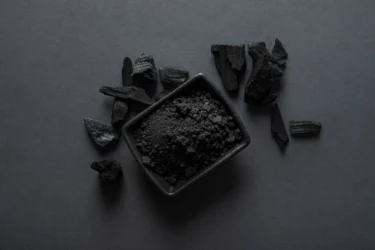
Activated charcoal may be used as a beneficial home remedy for teeth whitening. Activated charcoal may have a negative charge and bind to the positively charged dental plaque on the teeth surfaces. Hence, activated charcoal might be absorbed over the tooth surfaces resulting in the whitening of discoloured teeth4.
You may use marketed activated charcoal in the form of powder. Mix the charcoal powder with water to make a paste and use it to brush your teeth.
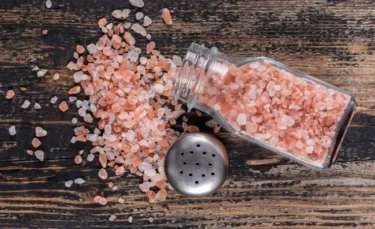
Rock salt may be used as an effective yellow teeth remedy. Rock salt might be a mild cleaning agent to remove superficial stains. These salts may increase the pH of the saliva, thus increasing antibacterial activity4. You may sprinkle a pinch of rock salt on your regular toothpaste and use it to brush your teeth. Regular brushing with rock salt might be the best remedy for teeth whitening.
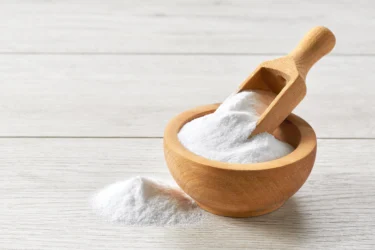
Baking soda is easily available in our kitchen. It might be a useful ingredient for teeth whitening. Baking soda is less abrasive (less harsh) to the teeth. Toothpaste made from baking soda may be the most effective home remedy for teeth whitening1.
Baking soda paste for teeth whitening might be helpful in overcoming teeth discolouration. You may combine a teaspoon of baking soda with a little amount of water to prepare a paste and then utilise it to brush your teeth with circular motions, followed by thorough rinsing with water.

Oil pulling is a traditional technique which includes swishing oil in the mouth. This technique is time-consuming and might be effective gradually. You may use coconut, sunflower or sesame oil for oil pulling. Take one teaspoon of oil and swish it around your mouth for about 20 mins a day. This process may be used to improve oral hygiene in general1.
Though various studies show the benefits of the given herb and home remedies in teeth whitening, these are insufficient. Therefore, there is a need for large-scale human studies to establish the true scope of the benefits of these home remedies on human health. Thus, these should only be taken cautiously and never as a substitute for medical treatment.
Also Read: Easy Home Remedies for Bleeding Gums
You must not rely on home remedies alone to treat teeth discolouration. Instead, you should consult a qualified doctor for advice on teeth whitening procedures if the signs do not improve with home remedies.
Also Read: Natural Home Remedies for Tooth Decay
Teeth whitening is a process that involves the bleaching of teeth. It gives dull-looking teeth a shiny and whiter appearance. However, the teeth whitening procedures are short-lived, less effective and might be risky. Therefore, it is better to try a few natural home remedies for teeth whitening. Fruits such as pineapple, papaya, strawberries and banana peel might help whiten teeth naturally. Baking soda, activated charcoal, coconut, sunflower, sesame oil, and dairy products are some other kitchen ingredients. However, you should consult a dentist if you are considering teeth whitening. They will be the best person to guide you in this process.
Also Read: Home Remedies For Toothache
Teeth whitening procedures are not recommended if you have sensitive teeth, cracks or exposed dentin, gum disease and if you are pregnant or breastfeeding2.
The alternatives for teeth whitening procedures include using teeth whitening toothpaste, frequent teeth cleaning by dentists and dental restoration such as crowns and veneers2. However, you may need a qualified dentist to carry out these procedures.
Teeth whitening procedures might help change the appearance of discoloured teeth, but it is temporary. It may be cheaper; however, it accompanies certain side effects such as irritation of gums and tooth sensitivity2. Therefore, you must consult a dentist and check if your teeth are suitable prior to considering these procedures.
Yes, you may use banana peel for teeth whitening. They contain minerals such as potassium, magnesium, manganese, etc., which get absorbed into teeth surfaces, making them look white4.
Various products such as tea, coffee, red wine, tobacco and antibiotics might cause staining of teeth. These products contain chromogens (dyeing substances) that may get attached to the teeth resulting in the formation of brown or black patches on teeth enamel5.
1. Cleveland Clinic [Internet]. How to Whiten Your Teeth: 4 Home Remedies. 2021 [cited 2022 Jul 15]. Available from: https://health.clevelandclinic.org/how-to-whiten-teeth/
2. Health direct [Internet]. Teeth whitening. 2020 [cited 2022 Jul 15]. Available from: https://www.healthdirect.gov.au/teeth-whitening
3. Cleveland Clinic [Internet]. Tooth Discoloration: Causes, Treatment & Prevention. 2022 [cited 2022 Aug 18]. Available from: https://my.clevelandclinic.org/health/diseases/10958-tooth-discoloration?view=print
4. Kalliath C, Mukunda A, Pynadath M, Venugopal V, Prethweeraj J. Comparison between the effect of commercially available chemical teeth whitening paste and teeth whitening paste containing ingredients of herbal origin on human enamel. Interna Quarter J of Resea in Ayur. 2018;39(2):113-117. Available from:https://www.ncbi.nlm.nih.gov/pmc/articles/PMC6369603/pdf/AYU-39-113.pdf
5. Choudhary M, Ratna Velugu G, Choudhary Professor E. Effect Of Hydrogen Peroxide Containing Extract Of Pineapple & Papaya As An Additive On Human Enamel During Vital Bleaching Using Reflectance Spectrophotometer: An In Vitro Study Noida. Interna J OF Scienti Resea. 2020;9(4):57–58. Available from: https://www.researchgate.net/publication/340667946_EFFECT_OF_HYDROGEN_PEROXIDE_CONTAINING_EXTRACT_OF_PINEAPPLE_PAPAYA_AS_AN_ADDITIVE_ON_HUMAN_ENAMEL_DURING_VITAL_BLEACHING_USING_REFLECTANCE_SPECTROPHOTOMETER_AN_IN_VITRO_STUDY
Disclaimer: The information provided here is for educational/awareness purposes only and is not intended to be a substitute for medical treatment by a healthcare professional and should not be relied upon to diagnose or treat any medical condition. The reader should consult a registered medical practitioner to determine the appropriateness of the information and before consuming any medication. PharmEasy does not provide any guarantee or warranty (express or implied) regarding the accuracy, adequacy, completeness, legality, reliability or usefulness of the information; and disclaims any liability arising thereof.
Links and product recommendations in the information provided here are advertisements of third-party products available on the website. PharmEasy does not make any representation on the accuracy or suitability of such products/services. Advertisements do not influence the editorial decisions or content. The information in this blog is subject to change without notice. The authors and administrators reserve the right to modify, add, or remove content without notification. It is your responsibility to review this disclaimer regularly for any changes.
Throat infection is a common symptom of viral or bacterial infection. Throat infection may feel like an irritation, inflammation, eruption or a painful scratch in your throat. The pain gets worse when you swallow. The pharynx is also called the throat. It is a hollow tube inside the neck from behind the nose to the top of the windpipe and oesophagus. Hence, a throat infection is also called pharyngitis. Pharyngitis can affect the surrounding areas including the tongue, tonsils and roof of the mouth. A throat infection is called sore throat when caused by a virus. Strep throat is an infection due to bacteria. Throat infections can quickly spread from one person to another by close contact and sharing utensils and objects. These infections occur more during the colder months1,4.
Let’s know more about the natural remedies for throat infection, which you may try at home.
Although the most common causes are bacterial and viral infections1. The causes of a throat infection may include-
The appearance of symptoms in people may vary in severity and duration. You might feel irritation and pain in the back of your mouth, tonsils and neck. You might also experience swollen lymph nodes, fever, earache and headache2,3. The following are the most common symptoms of throat infection:
The symptoms of a throat infection may show similarities to other health conditions; therefore, it is always better to check with your doctors for a complete diagnosis3.
You may try the following throat infection home remedies to ease your pain.
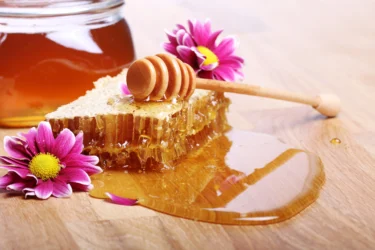
Honey may be the best home remedy for throat infections. Honey may have antibacterial and antiviral properties that might help relieve cough and cold symptoms. In addition, it may also have a soothing effect, making it a quick remedy for throat pain. Take one teaspoon of honey mixed with half a teaspoon of cinnamon powder before bedtime. This remedy might help clear up the respiratory passage. You may also use honey and clarified butter with hot fresh ginger paste to relieve sore throat and cough6.
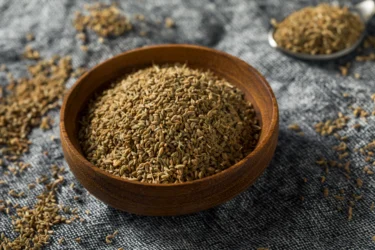
Ajwain leaves and seeds have been used in Indian cooking. Ajwain has been used in Indian home remedies for colds and coughs. It may have antimicrobial, antioxidant, antifungal and broncho-dilating properties. In addition, it may act as an expectorant (may help decongestion and remove mucous from nasal passages). It may also provide relief from coughing and sneezing6.
Ajwain seeds contain 2 to 4.4% thymol oil, which might be used for throat infections. Steep 2-3 teaspoons of ajwain in hot oil (coconut oil) for some time to allow all the nutrients to infuse in the oil. Upon cooling, use this oil to massage your chest, back and nose. It might help release the chest congestion.
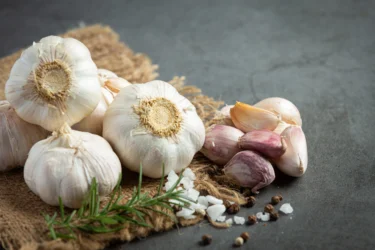
You should consider garlic for throat infections. Garlic contains a compound called allicin which might help enhance the immunity of the body and help fight against viral infection. Some laboratory studies have suggested that garlic contains an enzyme alliinase which may be associated with the antiviral activity against various types of viruses6.
Chewing raw cloves of garlic might be a good home remedy for throat infections. Take garlic along with vegetables and hot soup as it may be difficult to eat whole garlic.
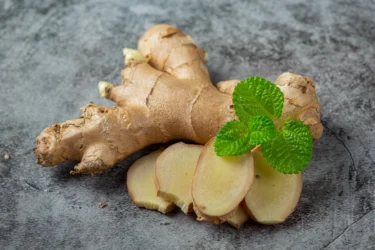
Ginger can be found in every Indian kitchen. Ginger contains unique compounds like zingerone and gingerols, which might prevent entry as well as stop the viral multiplication in the body. Fresh ginger may have antiviral activity against human respiratory viruses6.
You can make ginger tea by boiling a few slices of fresh ginger in a cup of water. Let it simmer for 3-5 minutes, then strain the water. Drink this ginger tea 2-3 times a day for relief.
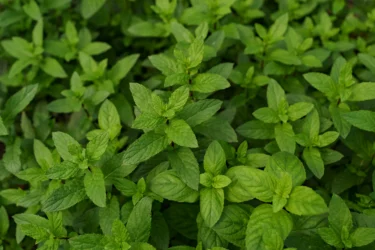
Studies have suggested that pudina may have antiviral, antioxidant, and antibacterial activities. In addition, it may enhance immunity, which may be beneficial in combating respiratory infections6.
To overcome the symptoms of throat infection, boil few mint leaves in one glass of water. Use this lukewarm water to gargle. You can also inhale the fumes; it might help with nasal congestion.
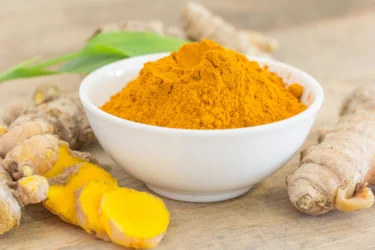
Studies showed turmeric (curcumin) had no toxic effects on humans. Turmeric contains a polyphenol called curcuminoid that may possess antiviral, anti-inflammatory, antioxidant and antifungal properties. Turmeric milk might be one of the most effective throat pain remedies. Add some turmeric powder to hot milk, stir well, and drink it 2-3 times a day. It might help boost immunity to prevent and relieve symptoms of viral infection6.
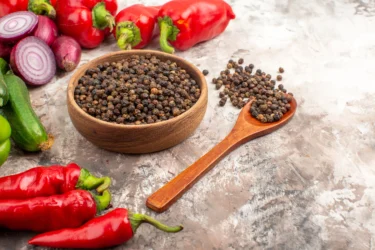
Black pepper is a traditional Indian spice. It contains quercetin which might act as an immunity enhancer for managing cold and cough symptoms. It may have antiviral, antibacterial and expectoration properties that might help break down the mucus and phlegm deposition in the respiratory tract. It may also provide relief from nasal and sinus congestion6. Take some hot water and add a bit of black pepper powder. Stir well and sip it slowly.
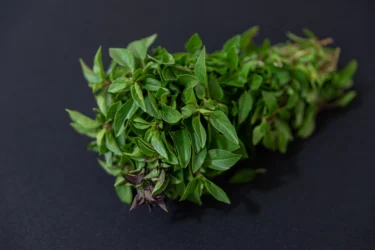
Basil or tulsi is an aromatic Ayurvedic herb. In the Ayurvedic medicine system, tulsi is called “Mother Medicine of Nature” and “The Queen of Herbs.” Studies have confirmed that tulsi may have beneficial properties such as antibacterial, antiviral, antifungal, antioxidant, anti-inflammatory, analgesic (pain-relieving), antipyretic (reduce fever), etc. Basil leaves might increase the production of natural immune cells in the body to fight viral infection6.
Tulsi tea might be an effective home remedy for throat infections. To make tulsi tea, take a handful of tulsi leaves and boil them in water. Allow the leaves to simmer for about five minutes and add ginger, cinnamon or honey if required. Drink this tea twice a day to help ease the pain.
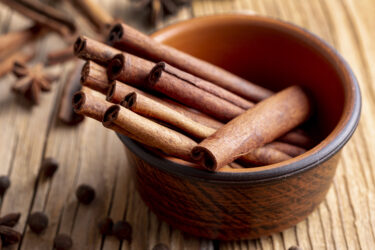
Cinnamon may have antiviral, antioxidant, antimicrobial and antifungal properties. It may also benefit the immune system. A regular intake of cinnamon might reduce the chances of getting throat infections6.
Add a pinch of cinnamon and ginger powder and bit of honey to a small amount of milk. Drink this cinnamon milk couple of times a day to help with throat pain.
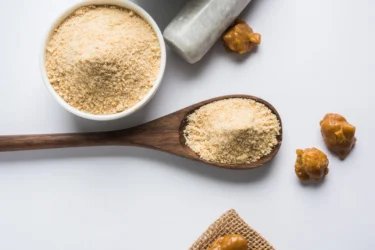
According to Taiwan Medical University, the roots of asafoetida may produce natural antiviral compounds. In laboratory studies, the antiviral activity of asafoetida has been demonstrated against the influenza A virus. Asafoetida may have sedative properties (induce sleep). It may also act as an expectorant, so may benefit in whooping cough. Asafoetida has a distinct odour which might deter or inhibit germs invasion6.
You may use asafoetida as an instant remedy for throat pain. Add a few teaspoons of asafoetida powder, ginger powder and a small quantity of honey to a glass of water. Drink this mixture twice a day to relieve sore throat.
Though there are studies that show the benefits of the given herb and home remedies in managing throat infections, these are insufficient. Therefore, there is a need for large-scale human studies to develop the true scope of the benefits of these home remedies on human health. Thus, these should only be taken with caution and never as a substitute for medical treatment.
The throat infection may not cause any serious health conditions. However, you might need to consult a doctor if you have a sore throat that lasts for longer than a few weeks2. The following signs should guide you to visit a doctor for proper treatment.
To ensure proper treatment for throat infections, it is essential to consult a qualified doctor if the symptoms do not improve with home remedies.It is also important that one must not self-medicate with antibiotics without knowing the diagnosis and possible side effects.
Also Read: Home Remedies For Strep Throat By Dr. Rajeev Singh
Viruses and bacteria both may cause throat infections. The infection caused by viruses (flu or common cold) is called the sore throat, whereas the infection by bacteria is called strep throat. You might feel painful inflammation and irritation in your throat. The development of symptoms may vary depending on immunity. Usually, the throat infections ward off in a few weeks. Consult a doctor if your symptoms worsen or fail to improve. You may try certain home remedies for throat infections. Home remedies using kitchen ingredients might provide relief from throat infections. You can try turmeric, ginger, honey, black pepper, tulsi, garlic, cinnamon, mint, asafoetida, etc., as beneficial home remedies for throat infection.
Also Read: Simple Home Remedies for Tongue Ulcers
Throat infections are caused mainly by viruses (common cold or flu) and bacteria (group A Streptococcus). It may be called sore throat in case of viral infection and strep throat in case of bacterial infection1,2.
The treatment for throat infection will depend upon age, symptoms and general health of a person. A doctor might recommend drinking more fluids, gargling with warm salt water, throat lozenges and acetaminophen or ibuprofen to relieve pain and fever3. The doctor may suggest an antibiotic in the case of a bacterial infection. It is important to take the antibiotics in the correct way as prescribed.
Asafoetida may have antiviral activities and also act as an expectorant. It might help in breaking down the mucus during whooping cough. Asafoetida may have a unique fetid odour which might act as a deterrent to germs6. However, more research is required to know the benefits of asafoetida in humans. Therefore, you should consult a doctor before using asafoetida to manage a throat infection.
You can take a teaspoon of honey with half a teaspoon of cinnamon powder before bedtime. You can also take honey with clarified butter and hot fresh ginger paste6. However, if the symptoms of throat infection persist even after taking honey, do not rely on honey alone. Immediately contact a doctor and get appropriate treatment for your sore throat.
Common symptoms of a throat infection include sore throat, difficulty swallowing, swollen tonsils, redness or white patches in the throat, fever, headache and hoarseness.
Yes, some throat infections caused by viruses or bacteria can be contagious. For example, strep throat, which is caused by Group A Streptococcus bacteria, is highly contagious and can spread through respiratory droplets.
The duration of a throat infection depends on its cause. Viral throat infections may last for a few days to a week, while bacterial infections, like strep throat, may require antibiotics and can resolve within a week with treatment.
Yes, a throat infection can cause hoarseness and affect your voice. Inflammation in the vocal cords due to infection can lead to changes in voice quality. Resting the voice and staying hydrated can help improve vocal symptoms.
While it’s challenging to prevent all throat infections, you can reduce the risk by practising good hygiene, washing hands frequently, avoiding close contact with sick individuals and maintaining a healthy lifestyle to support your immune system.
Yes, smoking or exposure to secondhand smoke can irritate the throat and worsen a throat infection. Quitting smoking and avoiding smoke exposure can promote faster healing.
1. Harvard Health [Internet]. Sore Throat (Pharyngitis). 2020 [cited 2022 Jul 18]. Available from: https://www.health.harvard.edu/diseases-and-conditions/sore-throat-pharyngitis-a-to-z
2. Cleveland Clinic [Internet]. Sore Throat (Pharyngitis): Causes & Treatments. 2022 [cited 2022 Jul 18]. Available from: https://my.clevelandclinic.org/health/symptoms/8274-sore-throat-pharyngitis?view=print
3. Cedars-Sinai [Internet]. Pharyngitis and Tonsillitis. [cited 2022 Jul 13]. Available from: https://www.cedars-sinai.org/health-library/diseases-and-conditions/p/pharyngitis-and-tonsillitis.html
4. NCI Dictionary of Cancer Terms – NCI [Internet]. Definition of pharynx. [cited 2022 Aug 20]. Available from: https://www.cancer.gov/publications/dictionaries/cancer-terms/def/pharynx
5. Centre for Disease Control and Prevention [Internet]. Sore Throat | Antibiotic Use. 2021 [cited 2022 Aug 22]. Available from: https://www.cdc.gov/sore-throat/about/?CDC_AAref_Val=https://www.cdc.gov/antibiotic-use/sore-throat.html
6. Shrivastava R. Immunity boosters: Solutions from nature – Herbs and spices. J of Renal Nutri and Metabo. 2020;6(2):37. Available from: https://www.researchgate.net/publication/344022592_Immunity_boosters_Solutions_from_nature_-_Herbs_and_spices
Disclaimer: The information provided here is for educational/awareness purposes only and is not intended to be a substitute for medical treatment by a healthcare professional and should not be relied upon to diagnose or treat any medical condition. The reader should consult a registered medical practitioner to determine the appropriateness of the information and before consuming any medication. PharmEasy does not provide any guarantee or warranty (express or implied) regarding the accuracy, adequacy, completeness, legality, reliability or usefulness of the information; and disclaims any liability arising thereof.
Links and product recommendations in the information provided here are advertisements of third-party products available on the website. PharmEasy does not make any representation on the accuracy or suitability of such products/services. Advertisements do not influence the editorial decisions or content. The information in this blog is subject to change without notice. The authors and administrators reserve the right to modify, add, or remove content without notification. It is your responsibility to review this disclaimer regularly for any changes.
The majority of the insect bites that occur worldwide are mosquito bites. Although mosquito bites are non-threatening, they may transmit disease-causing pathogens and pose a severe threat. Mosquitoes are insects scientifically known as Anopheles, Aedes and Culex. Did you know the larger female mosquitos bite as they need blood and nourishment to produce eggs1? A mosquito bite can give you diseases such as malaria, dengue, chikungunya and zika. About 700 million people die every year because of diseases caused by mosquito bites.
Prevention is better than cure is the motto to steer clear of these diseases. Simple and quick remedies at home may help relieve a mosquito bite. However, if you notice signs of infectious disease, you might need medical help.
Continue reading to learn more about mosquito bites, their consequences and how to manage them with easy and natural home remedies.
A red itchy bump that disappears on its own is common after a mosquito bite but some people may experience symptoms that are more severe and can include rash, large areas of excessive swelling, and even bruising, this is called Skeeter syndrome which needs medical management.
Dr. Ashish Bajaj, M.B.B.S., M.D. in Clinical Pharmacology and Toxicology
The female mosquitoes are the ones that suck blood for nourishment. Mosquitoes possess a long mouthpart shaped like a tiny needle pierces your skin, sucks your blood and secretes saliva into your bloodstream2.
Here are some risk factors that make you prone to mosquito bites,
You may experience itching and swelling at the site of the bite if you are bitten by mosquitoes2. other signs include:
More severe symptoms of a mosquito bite can be observed in:
More severe reactions seen may be:
Insect bite reactions can sometimes be severe and in bee bites some people can get severe reaction called anaphylaxis which should be treated by a doctor.
Dr. M.G. Kartheeka, MBBS, MD(Pediatrics)
Here are some natural ingredients that you may use to remedy mosquito bites. You can use these remedies at home to help with the pain, inflammation and itching of mosquito bites.
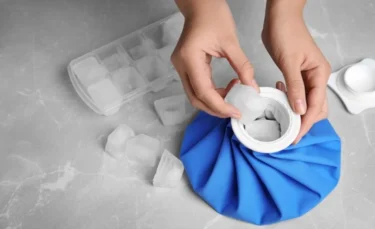
You may rub ice on a mosquito bite. It might help reduce blood flow to the area, decreasing inflammation. It may also help with the pain and itching. If you are using ice or an ice pack, make sure to wrap it in a light towel first and then apply it at the site of the mosquito bite to get relief2.
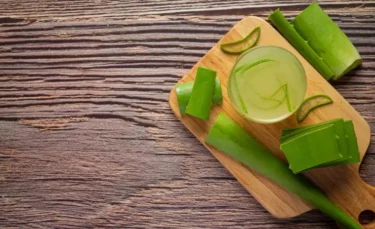
Aloe vera gel is a common ingredient in several herbal remedies. The gel contains salicylic acid, an active component capable of reducing pain and itching. You may apply aloe vera gel directly onto the mosquito bite2.
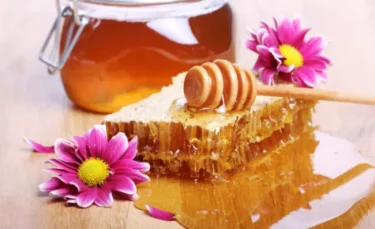
Honey is an ingredient packed with many properties that may help relieve pain and itching. Honey is known to contain an enzyme called catalase, which may provide relief from inflammation. Apply honey directly to the mosquito bite. Make sure to use unprocessed honey2.
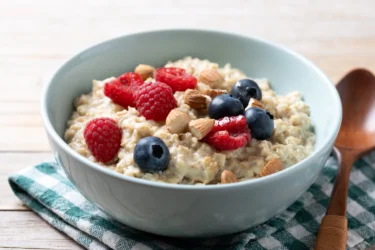
Gluten present in oatmeal may help soothe mosquito bites. You can take some oatmeal and grind it into fine powder. To this powder, add some warm water to make a thick paste. You may apply this paste directly to the mosquito bite. Make sure to cover the bite completely. Keep it for some time and then wipe it off using a clean towel2.
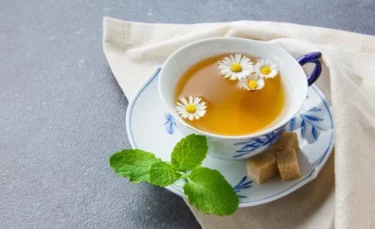
Chamomile flowers are rich in chemicals like flavonoids and triterpenoids. These chemicals may show antioxidant and antihistamine properties. These properties may help reduce pain, inflammation and itchiness of the mosquito bite. You can take a chamomile tea bag and put it in water. Wait till the water turns golden brown. Take out the tea bag and squeeze it to remove excess water. The tea bag can be pressed directly against the mosquito bite for some time to get relief. You can remove the tea bag and wipe the bite with a clean towel2.
If you encounter fever, nausea, vomiting, body ache within 2 weeks of seemingly related mosquito bites, contact your physician for an accurate diagnosis.
Dr. Ashish Bajaj, M.B.B.S., M.D. in Clinical Pharmacology and Toxicology
Also Read: Effective Home Remedies for Scabies
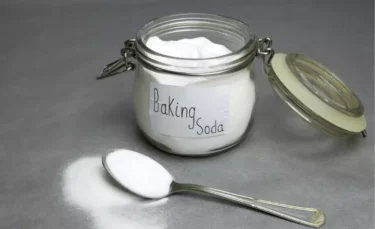
Baking soda may help you reduce the itchiness of the mosquito bite. To use baking soda, mix a teaspoon of baking soda with some water to make a smooth paste. You can apply this paste to the mosquito bite to get relief. Leave the paste for some time and wash it off with water3.
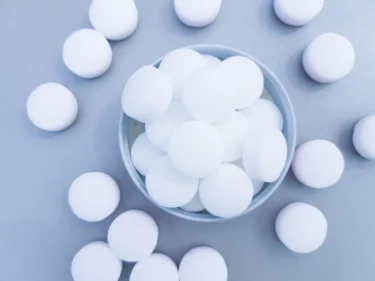
Camphor is an effective remedy for a wide range of health concerns. It may reduce inflammation and itching of the mosquito bite. You may apply camphor oil directly on the mosquito bite to get quick relief from symptoms.
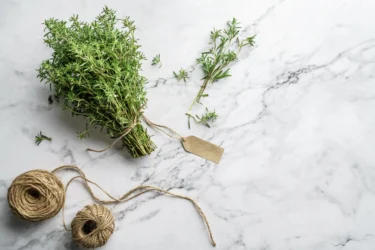
There is historical evidence showing the use of thyme for inflammatory skin conditions. In addition, thyme has been used for treating mosquito bites, although there is insufficient evidence to prove its efficacy4. You may dilute thyme oil with a carrier oil such as olive or coconut oil.
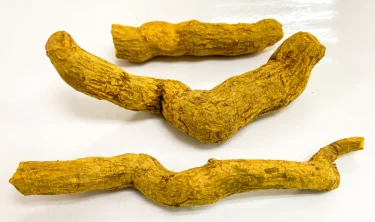
Serpent root is a medicinal herb known as Isvari in Hindi. There are many ways to use serpent root insect bites, such as mosquitoes. You may consume fresh juice of leaves of serpent root plant with some pepper powder to get relief. The leaves’ paste might be directly applied over the mosquito bite to relieve the symptoms.
Though some studies show the benefits of the given herb and home remedies for mosquito bites, these are insufficient. There is a need for large scale human studies to establish the true extent of the benefits of these home remedies on human health. Thus, these should only be taken cautiously and never as a substitute for medical treatment.
The American Academy of Dermatology (AAD) recommends using a cold, damp cloth or an ice pack to relieve the itching caused by a mosquito bite. A bag of crushed ice can also work well in a pinch. Do not put ice directly on your skin, because it can cause damage.
Dr. M.G. Kartheeka, MBBS, MD(Pediatrics)
You need to seek medical help at the earliest if you experience any of the following:
You must not rely on home remedies alone for treating mosquito bites and should consult a qualified doctor for any advice for the condition if the symptoms do not improve with home remedies.
Also Read: Natural Home Remedies for Stretch Marks
Mosquito bites though usually harmless, may spread disease-causing pathogens. You may experience swelling, itchiness, and pain at the site of the bite. However, you can use some common herbs and ingredients to remedy mosquito bites. Herbs like chamomile, aloe vera, and thyme may help you reduce the inflammation and itching of the mosquito bite. You can also apply honey, oatmeal, or ice packs on the mosquito bite to get relief. Wearing thick clothing and staying indoors when the mosquito activity is highest are some ways you can prevent getting bitten. Sometimes, mosquitoes may spread infectious diseases. Therefore, if you experience signs of fever, nausea, vomiting, headache, and body ache following a mosquito bite, contact your healthcare provider immediately, as it can signify a severe health condition.
Also Read: Best Home Remedies For Whiteheads
You may use ingredients like thyme, chamomile, honey, oatmeal, aloe vera and camphor on your mosquito bite. These ingredients may help reduce irritation, itching and swelling of the mosquito bite. You may use ice packs wrapped in a light towel onto the mosquito bite to minimize swelling.
Fumigating the home with neem leaves or Indian borage leaves can help eliminate mosquitoes. Placing camphor oil around the corners of your house may also help.
Yes, you may fall ill following a mosquito bite. You may get infected if you get bit by a mosquito carrying infectious pathogens. If you notice signs of fever, headache, body ache, nausea and vomiting, reach out to your doctor immediately.
Most mosquito bites are not that serious. However, you should consult a doctor if you notice signs of infectious illness. The symptoms are fever, nausea, fatigue, headache and body pain.
1. Seda J, Horrall S. Mosquito Bites. Veterinary Allergy [Internet]. 2021 Oct 28 [cited 2022 Jul 19];267–70. Available from: https://www.ncbi.nlm.nih.gov/books/NBK539915/
2. Mosquito Bites: What They Look Like, Why They Itch & Treatment [Internet]. [cited 2022 Jul 19]. Available from: https://my.clevelandclinic.org/health/diseases/17695-mosquito-bites
3. Basch E, Ulbricht C, Hammerness P, Bevins A, Sollars D. Thyme (Thymus vulgaris L.), Thymol. http://dx.doi.org/101080/J157v04n01_07 [Internet]. 2009 Jan [cited 2022 Jul 20];4(1):49–67. Available from: https://www.tandfonline.com/doi/abs/10.1080/J157v04n01_07
4. Vassiliou E, Awoleye O, Davis A, Mishra S. Anti-Inflammatory and Antimicrobial Properties of Thyme Oil and Its Main Constituents. Int J Mol Sci. 2023 Apr 8;24(8):6936. doi: 10.3390/ijms24086936. PMID: 37108100; PMCID: PMC10138399. Available from: https://pmc.ncbi.nlm.nih.gov/articles/PMC10138399/
Disclaimer: The information provided here is for educational/awareness purposes only and is not intended to be a substitute for medical treatment by a healthcare professional and should not be relied upon to diagnose or treat any medical condition. The reader should consult a registered medical practitioner to determine the appropriateness of the information and before consuming any medication. PharmEasy does not provide any guarantee or warranty (express or implied) regarding the accuracy, adequacy, completeness, legality, reliability or usefulness of the information; and disclaims any liability arising thereof.
Links and product recommendations in the information provided here are advertisements of third-party products available on the website. PharmEasy does not make any representation on the accuracy or suitability of such products/services. Advertisements do not influence the editorial decisions or content. The information in this blog is subject to change without notice. The authors and administrators reserve the right to modify, add, or remove content without notification. It is your responsibility to review this disclaimer regularly for any changes.
Malaria is a serious but common infection that is spread through the bite of an infected mosquito. It is mostly seen in hot and humid climates with the highest number of cases reported in Africa and South Asia. Unlike many other infections caused by viruses or bacteria, malaria is caused by a parasite. When an infected mosquito bites a person, it passes the parasite into the bloodstream. Malaria requires timely medical intervention. If not properly managed, it can lead to serious complications, such as seizures, breathing difficulties, organ failure, and even death1.
Some herbs and home remedies may help ease malaria symptoms; however, these should not be used as a substitute for proper medical care. It is recommended to talk to a doctor before using any herbal remedies, so you can make well-informed choices for managing malaria.
You or someone you know may have had malaria at least once in life. Continue reading to learn more about how this illness can be managed.
Malaria starts when the malarial parasite enters your body, usually through the bite of an infected mosquito. When a mosquito bites someone who has malaria, it becomes infected with the parasite. When that mosquito bites another person, it can pass the parasite to them2.
Other, less common ways malaria can spread include:
While home remedies help in recovery, all should consult a doctor. However, prevention of mosquito bites by mosquito nets, mosquito repellent creams and prevention of water stagnation is as important.
Dr. M.G. Kartheeka, MBBS, MD(Pediatrics)
Symptoms of malaria usually appear about 10 days to a month after a person is infected. If you have malaria, you may experience symptoms like:
Depending on the type of malarial parasite causing the infection, symptoms may be mild or severe. In some cases, you may experience worsening symptoms, including jaundice (yellowing of the skin and eyes) and anaemia1.
Some herbs and home remedies may help ease certain symptoms of malaria and support your recovery. However, these herbs should not be used as a substitute for standard medical treatment. Always consult your doctor before taking any herbal or natural remedies for malaria.

People with malaria often experience symptoms like nausea and vomiting. Several clinical studies4 suggest that ginger may help manage these symptoms. While ginger alone may not be able to manage malaria, it may provide relief from some symptoms when used along with prescribed medicine5.
Ginger tea is a commonly used home remedy to help manage certain conditions. To make ginger tea, you can boil some freshly crushed ginger in a glass of water. You may add a little lemon juice or a spoonful of honey for taste.
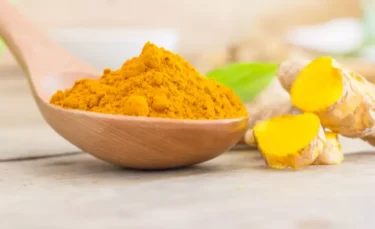
Curcumin, the active compound in turmeric, has shown antimalarial activity in some animal studies6. While turmeric is not a substitute for medical management, it can be used as a supportive remedy under your doctor’s guidance.
Turmeric can be added to your diet in several ways. You can mix a pinch of turmeric into a glass of warm milk or include it in everyday cooking, such as in dals, curries, or soups.
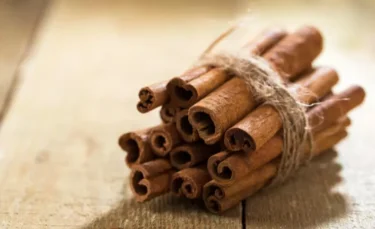
Cinnamon is a commonly used kitchen spice with many beneficial properties. Several studies7 suggest that cinnamon may have inhibitory effects against malaria-causing pathogens.
Cinnamon can be added to your routine in several ways. You can add cinnamon powder to your herbal teas or mix the powder in a glass of warm water. You can also combine it with a pinch of powdered black pepper and honey to enhance the taste.
Always speak with your doctor before trying cinnamon or other herbs alongside malaria treatment.
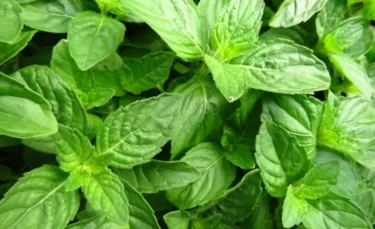
Tulsi is a well-known herb traditionally used in the Ayurvedic system of medicine. It is believed support overall health and well-being. Many scientific studies suggest that tulsi may have antimalarial properties and may support the body’s immune response against infective pathogens8.
You can make tulsi tea by boiling fresh tulsi leaves in water and straining the liquid into a cup. You can add a few drops of lemon juice or honey for additional taste.
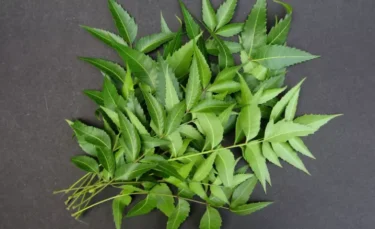
Neem has traditionally been used for managing malaria for centuries. The compounds found in neem have shown activity against malarial parasites. Neem may be useful in preventing malaria as well, as neem oil seems to be a good mosquito repellent. It is believed that neem may be able to lower fevers, stimulate the immune system, and support faster recovery from malaria9.
You can drink neem tea or chew fresh neem leaves. To make neem tea, boil a glass of water, add some neem leaves to it, and let it steep for a while. Strain the mixture into a cup and your tea is ready to serve. You can add a dash of honey for flavour.
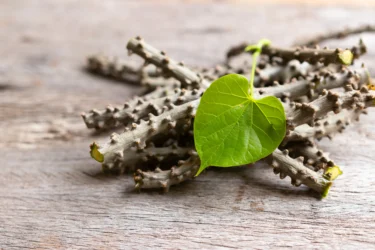
Guduchi is a well-known herb in traditional Indian medicine. Its juice may help boost immunity and help fight off infections. Studies10 suggest that guduchi may have anti-malarial properties and may be able to support better immunity.
You can make guduchi juice at home by peeling off the skin of fresh guduchi, chopping it into pieces, adding a glass of water, and blending it into a fine consistency. Strain it into a cup and your guduchi juice is ready to drink.

Coconut water has long been consumed for its refreshing taste and hydrating properties. It contains natural electrolytes that may help support fluid balance in the body. Some animal studies11 also suggest that it may have antimalarial properties.
You can drink coconut water to prevent the dehydration induced by vomiting during malaria.

Krishna musali, also known as golden eye grass, is a medicinal herb with many beneficial properties. The dried rhizome of this plant is believed to support immune functions. Krishna musali powder, consumed with a glass of milk, may help in faster recovery. Though some studies12 suggest that Krishna musali and certain other herbal remedies may have some benefits for individuals recovering from malaria, current evidence is limited. There is a need for large-scale human studies to establish the true extent of their benefits in individuals with malaria. Therefore, such remedies should be used with caution and never as a replacement for medical treatment.
Also Read: Malaria: Types, Symptoms, Causes and Treatment
It is important to speak to a doctor as soon as you notice any symptoms that may be linked to malaria. Getting a timely diagnosis and appropriate treatment can support quicker recovery1.
Home remedies may offer some relief from mild symptoms, but they must not be used as a substitute for medical care. If symptoms do not improve or become worse, you should consult a qualified doctor without delay for proper evaluation and guidance.
Also Read: Effective Home Remedies for Period Pain
Malaria is a common but potentially serious illness that requires timely medical care to reduce the risk of complications such as brain damage or, in severe cases, death. Some natural herbs and spices available in your kitchen, such as turmeric, cinnamon, tulsi, neem, and ginger, have been traditionally used to help ease certain symptoms. While these may offer some relief, they should never be used as a replacement for proper medical treatment.
If you suspect you have malaria, it is important to consult a qualified doctor for accurate diagnosis and treatment. Always speak to your doctor before trying any home remedies, especially during an active infection.
Also Read: Natural Home Remedies for Chest Congestion
Some commonly used herbs such as tulsi, neem, ginger, cinnamon, turmeric, guduchi, and Krishna musali may help ease certain symptoms of malaria. However, these should not be used as a replacement for medical treatment. Always speak to a qualified doctor before using any home remedies.
While some home remedies may offer comfort or support recovery, malaria requires proper medical treatment. You must consult a doctor for accurate diagnosis and appropriate care. Relying only on home remedies can delay recovery and may lead to complications1.
Yes, if left untreated or not managed properly, malaria can lead to serious complications such as brain damage, organ failure, or even death. Seeking prompt medical attention when symptoms appear is essential.
Neem is traditionally believed to have properties that may help reduce fever and support immune health. Some early studies suggest it might help manage certain symptoms. However, neem should never be used without medical advice, especially during an active infection. Always consult a doctor before using any herbs for malaria.
Disclaimer: The information provided here is for educational/awareness purposes only and is not intended to be a substitute for medical treatment by a healthcare professional and should not be relied upon to diagnose or treat any medical condition. The reader should consult a registered medical practitioner to determine the appropriateness of the information and before consuming any medication. PharmEasy does not provide any guarantee or warranty (express or implied) regarding the accuracy, adequacy, completeness, legality, reliability or usefulness of the information; and disclaims any liability arising thereof.
Did you know that urinary tract infections are more common in women than men because they have a shorter urethra? Shockingly but unfortunately, it’s true. The urethra, which is the tube that carries the urine outside, is shorter in women and closer to the anus. This is an area where the common causative organism of urinary tract infection, the bacteria E. coli, resides. The urinary tract infection (UTI) is a prevalent infection of the urinary system and typically involves the urethra (infection is called urethritis), urinary bladder (infection is called cystitis) or kidneys (infection is called polynephritis). Your doctor might prescribe you medicines to deal with urinary tract infections. Read along to learn more about it1.
Did you know?
The urinary tract includes the urethra and bladder. Any infection by micro-organisms involving this tract is called urinary tract infection (UTI). Usually, bacteria are the micro-organisms involved in UTIs. The infection may also affect the ureters and might infect the kidneys1.
UTI is associated with irritation (inflammation) and redness of the urinary tract lining. The following symptoms may be experienced by a person having a UTI:
Other symptoms that you might notice if you have a UTI are:
Research is being conducted worldwide to discover natural and safe methods to treat diseases. Limited evidence is present regarding the use of natural products for urinary tract infections. Home remedies for urinary tract infections discussed here must be backed up by more research to prove their effectiveness. However, some of the herbs having the potential to be helpful for UTIs are described below.
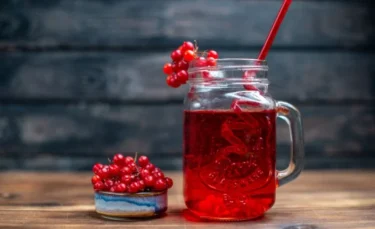
Cranberry juice might help against urinary tract infections. It has been used for the treatment of UTIs for centuries. The use of cranberry juice in UTIs is due to its potential antibacterial property. Cranberry juice has many bioactive compounds (flavonoids, anthocyanins, organic acids, etc.), which might result in the excretion of hippuric acid. Thus, Hippuric acid being a potent antibacterial agent might play a role in bringing down the bacterial count against bacteria causing UTIs. However, more research is required to prove these claims. Kindly consult a doctor before use2.
What I have observed is that regular consumption of cranberry juice or hibiscus tea by women who were suffering from repeated attacks of uti reduced the frequency of uti in them. Other factors like good hygiene are equally important.
Dr. Nikhil Yadav, MBBS MD, CCEBDM

Bearberry is also known as Arctostaphylos uva-ursi or upland cranberry. The leaves of this plant might exhibit potent antibacterial properties. It might be a potent herb for bladder infections. It might specifically have antibacterial activity against E. coli, which is known to be the primary causative agent of UTIs. It contains a compound, arbutin, which might be responsible for its diuretic (increased urine production and excretion) and astringent (acidic or bitter) property, which might be helpful against UTIs. However, more research is necessary to prove these effects2.

It is known that cinnamon might have an action against the bacteria causing UTIs in long- term catheter users. This activity might be due to its potential effect of preventing the bacteria from coating the urinary tract. Therefore, cinnamon might be an effective natural remedy for UTIs. However, more research is required to prove such claims. Kindly do not self-medicate2.
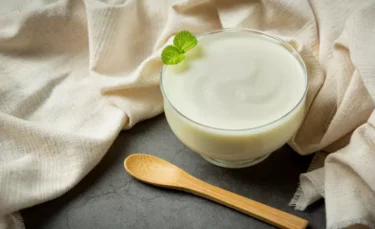
Probiotics are gut-friendly bacteria that might be helpful against UTIs as well. They might be helpful against UTIs. They mainly contain bacteria such as Lactobacillus, which apparently adhere to the wall of the urinary tract, thus forming a barrier against the UTI causing bacteria. However, more research is required to state the use of probiotics for UTIs2.
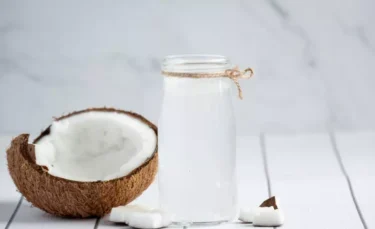
Narikela or coconut has many benefits in many different forms. It is known as narial, coconut palm and many other names in various parts of India. Drinking coconut water regularly might be helpful for those suffering from UTI and to enhance urinary health in general. It acts as a diuretic (facilitates urine formation and urination). It might help in flushing the kidneys too. However, more research is required to ascertain these effects3.

Punarnava (Boerhaavia diffusa) belongs to the family Nyctaginaceae. It is also known as horse puselene and Hog weed in English. It might be helpful in recurrent urinary tract infections. Your Ayurvedic physician might prescribe you a decoction containing the leaves of Punarnava, Tribulus (Gokshura) and coriander for UTIs. This decoction might also be helpful in treating pain or burning sensation felt during urination in people not having UTIs. However, these claims need to be backed up by more research. Kindly do not self-medicate3.
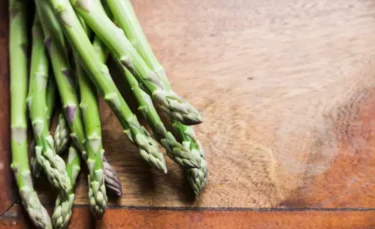
Asparagus is also known as satavar or satavari. It is also referred to as Satmull or Satamuli. It belongs to the family Asparagaceae and has the scientific name Asparagus racemosus. The root powder of this herb might be helpful for this disease. Your doctor might recommend using of the root powder of asparagus at night for UTIs. However, more research will be required to ascertain such claims3.

Your doctor might recommend that you increase the intake of fluids, especially water. This habit might be helpful in urinary tract infections as it might help fight against bacterial infection. Therefore, you should be drinking the daily recommendation of six to eight glasses of water. However, please note that urinary tract infection is a condition that needs to be diagnosed and treated by a doctor. Kindly consult a doctor as soon as possible for proper diagnosis and treatment, do not reach conclusions on your own1.
Though studies show the benefits of the given herb and home remedies in the condition, these are insufficient. There is a need for large-scale human studies to establish the true extent of the benefits of these home remedies on human health. Thus, these should only be taken with caution and never as a substitute for medical treatment.
Also Read: Simple Home Remedies for Frequent Urination
You should seek medical advice if you are experiencing the symptoms of urinary tract infection, as mentioned above. You should revisit your doctor if your UTIs symptoms get worse. The worsening of symptoms might indicate the need for a change in the treatment plan. Immediate medical help should be sought if one or more of the following symptoms are experienced:
A urinary tract infection can spread to various other parts of your body, but timely treatment can prevent this. Therefore, you should visit a doctor as soon as you notice the symptoms of a urinary tract infection1.
You must not rely on home remedies alone for the treatment of UTIs. You should consult a qualified doctor for any advice if the condition does not improve with home remedies.
Also Read: Best Home Remedies For Hangover
Urinary tract infection is an infection of the urinary tract (urethra, bladder, etc.). It is more common in women than men because they have a shorter urethra. This infection is mainly caused by a bacteria called E. coli. Pain in the flank, burning sensation and smelly and cloudy urine, etc., might be noticed if you have a UTI. A few natural products might act as home remedies for urinary tract infections, such as cranberry juice, cinnamon, bearberry, coconut water, etc. However, more research is required to ascertain the potential of these possible home remedies for urine infection. Moreover, UTI can be a severe condition if not treated properly and must be diagnosed and treated by a doctor.
Also Read: Effective Home Remedies For Vaginal Dryness
The possible home remedies for urine infection, including cranberry juice, coconut water, cinnamon, bearberry, etc., might potentially help against UTIs. However, more research is required to prove such claims. Moreover, you should consult a doctor and not rely on home remedies for UTIs1,3.
Cranberry juice might have a potential antibacterial property and might help against UTIs. Therefore, cranberry juice might help for UTI treatment at home. However, more research is required. So, ensure that you consult a doctor for the proper diagnosis and treatment of UTIs2.
You should consult a doctor who might prescribe you medicines and suggests ways to help with UTIs. Kindly do not self-medicate. Always consult a doctor for health-related issues.
Cinnamon might potentially help against urine infections in patients using catheter for a long time. Therefore, it might be helpful for urinary tract infections. However, more research is required to prove such claims. Kindly consult a doctor for UTIs. Do not self-medicate2.
Yes, drinking coconut water might be helpful to flush out the excess bacteria by possibly increasing urine production. However, more research is necessary for this. Kindly consult a doctor3.
1. Urinary Tract Infections [Internet]. Cleaveland Clinic. [cited 2022 Jul 13]. Available from: https://my.clevelandclinic.org/health/diseases/9135-urinary-tract-infections
2. Das S. Natural therapeutics for urinary tract infections, a review. Futur J Pharm Scciences [Internet]. 2020;2. Available from: https://www.ncbi.nlm.nih.gov/pmc/articles/PMC7498302/
3. AYUSH. Ayurveda Offering Herbal Healing [Internet]. 1–128 p. Available from: https://www.esic.nic.in/attachments/publicationfile/7d11b02e5abb4717d53b4ce05efabd21.pdf
Disclaimer: The information provided here is for educational/awareness purposes only and is not intended to be a substitute for medical treatment by a healthcare professional and should not be relied upon to diagnose or treat any medical condition. The reader should consult a registered medical practitioner to determine the appropriateness of the information and before consuming any medication. PharmEasy does not provide any guarantee or warranty (express or implied) regarding the accuracy, adequacy, completeness, legality, reliability or usefulness of the information; and disclaims any liability arising thereof.
Links and product recommendations in the information provided here are advertisements of third-party products available on the website. PharmEasy does not make any representation on the accuracy or suitability of such products/services. Advertisements do not influence the editorial decisions or content. The information in this blog is subject to change without notice. The authors and administrators reserve the right to modify, add, or remove content without notification. It is your responsibility to review this disclaimer regularly for any changes.
We all have had a fever at least once and know how it feels. A fever is a rise in body temperature. This simply indicates that there is an occurrence of abnormal activity in our body1. You can get a fever due to numerous factors like a viral or bacterial infection, exhaustion from heat, a cancerous tumour, medications like antibiotics and medicines used to treat seizures or high blood pressure, vaccines (like COVID vaccine, diphtheria, tetanus, etc.) and inflammatory conditions like rheumatoid arthritis2. A fever merely indicates that something is not right in the body, but it doesn’t give much idea as to what exactly is going on. It does not even indicate the presence of a disease. Viral fever, as one of the major types of fever, is elaborated in detail in this article1.
Did You Know?
Fever is the increase in the body temperature from the normal range of 36.4 C – 37.4 C (97.5 F to 98.9 F) to 38 C (100.4 F) or even higher. There can be multiple reasons that can cause a rise in body temperature. When the fever occurs due to a viral infection, it is called a viral fever1.
Most fevers with viral illnesses range between 101° and 104° F (38.4° and 40° C). They may last for 2 or 3 days. The best treatment for children suffering from viral fever is to rest at home to allow the child’s immune system to fight the virus, as antibiotics are now used in such conditions.
Dr Ashish Bajaj, M.B.B.S, M.D. in Clinical Pharmacology and Toxicology
Viral fever is usually accompanied by symptoms and a rise in body temperature above 38 C (100.4 F). You might also experience the following symptoms:
Viral fever is one of the common causes of fever, which is a self-limiting infection. Many patients start using antibiotics right from the first day of mild fever, even without visiting their physician. This self-medication habit has led to a surge in antibiotic resistance. One should always visit their physician for a check-up and proper management of underlying diseases.
Dr. Nikhil Yadav, MBBS MD,CCEBDM
As fever can be due to a wide variety of reasons, it can be quite difficult to pinpoint the actual cause. Moreover, a wide range of viruses can cause viral fever1. Consulting a doctor and seeking their expert advice and treatment will be the best choice. However, a few simple home remedies for viral fever might be helpful. A few possible home remedies are as follows.

Coriander seeds are commonly known as dhaniya. It belongs to the family Apiaceae, and its scientific name is Coriandrum sativum. Coriander seeds have potential use for multiple conditions in Ayurveda. They might have a use for fever as well. Your Ayurvedic physician may suggest that you mix a little bit of coriander seed powder in warm water to bring down your fever. Sugar can be added for an improvement in taste. This remedy might be helpful for fever3.

It is also known as Giloe and Gurcha in Hindi, Gilo in Punjabi, etc. Your doctor might recommend consuming a decoction prepared using Guduchi. It might have potential use in reducing fever. To prepare the decoction, stems of Guduchi can be boiled in water, and other ingredients like dry ginger, Patraka, etc. might also be added3.

A plant by the name Aristolochia indica belongs to the family Aristolochiaceae. It is commonly called as Ishwari, Indian Birthwort and Serpent Root. Consumption of this plant might help reduce fever. The juice of the whole plant may have antipyretic properties. A few drops of this plant might be given to you as medicine by an Ayurvedic physician for fever and diarrhoea3.
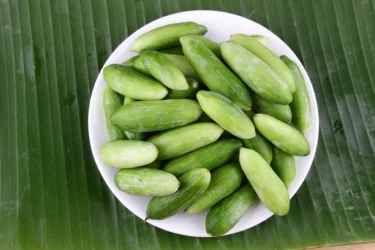
Bimbi, also known as Ivy gourd in English, Kundaruki Bel in Hindi and Tondale in Marathi, might positively affect fever. External application of leaf of this plant might help induce perspiration which might help reduce fever. Kindly consult a doctor and do not use it to self-medicate3.
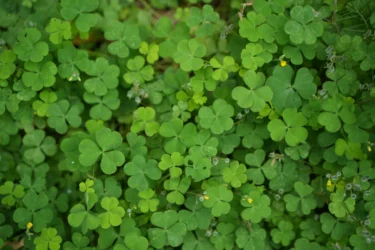
Ambolee (Gujarati), Amrul (Bengali), Indian Sorrel (English), Pulichinta (Telugu), etc., are the different names of Changeri. In the scientific community, it is also known as Oxalis comiculata belonging to the family Oxalidaceae. The paste of the whole plant of Changeri is boiled in some water and the water is then reduced. Drinking this decoction might be help reduce fever3.
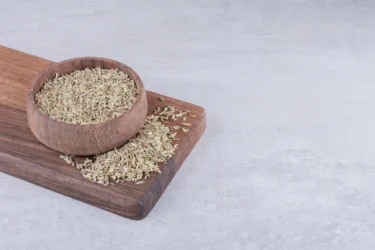
Jeera might have the potential to be helpful in various conditions like memory enhancement, piles, flatulence, etc. It might also have the potential to reduce the body temperature in fever. In English, Jeera is known as cumin seeds or simply cumin. It belongs to the family Apiaceae with the scientific name Cuminum cyminum. For intermittent fever, taking jeera with a bit of black pepper and jaggery might be helpful3.
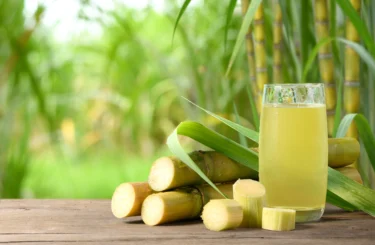
Drinking fluids in the form of water, juices and soups might help reduce fever. Your doctor might also recommend oral rehydration solution (ORS). It is commonly available at any medical store. It may be advised especially for children under one year, as it contains water and salts that replenish lost fluids and salts (electrolytes). This remedy might be useful as a fever might cause loss of fluids and dehydration4.

Activity can cause an increase in body temperature. Therefore, it is important that you rest well to recover from a fever. It may also be said that staying in a cool environment and dressing in light clothing might be helpful4.
Though studies show the benefits of the given herb and home remedies in the condition, these are insufficient. There is a need for large scale human studies to establish the true extent of the benefits of these home remedies on human health. Thus, these should only be taken with caution and never as a substitute for medical treatment.
Cold water sponging, although producing a rapid reduction in temperature compared with paracetamol, has effects that last only for a short time. Paracetamol, on the other hand, produces a gradual but sustained effect. The discomforts experienced should not be a limiting factor to the use of cold water sponging in reducing the body temperature of febrile children.
Dr. M.G. Kartheeka, MBBS, MD(Pediatrics)
If a baby younger than three months has a fever, they should be immediately taken to a doctor1.
In other conditions, you should seek immediate medical attention under the following circumstances:
You must not rely on home remedies alone for the treatment of the condition and should consult a qualified doctor for any advice for the condition if the symptoms do not improve with home remedies.
Also Read: Home Remedies For Mosquito Bite By Dr. Siddharth Gupta
An increase in the body temperature of above 100.4 F or 38 C is regarded as a fever. It might indicate that something is not quite right in our body. It does not necessarily mean the presence of a disease. When you get a fever due to a viral infection, it is called a viral fever. A flushed face, diarrhoea, vomiting, headache, etc., might also be present along with a fever. A few herbs such as Changeri, coriander seed powder, etc. might help reduce fever. However, make sure that you consult a doctor for proper treatment, as in some cases, a viral fever may worsen.
Also Read: Home Remedies For Flu By Dr. Rajeev Singh
Viral fever is an increase in body temperature to 100.4 F or higher caused due to a viral infection. A fever can be caused due to bacterial infections and other conditions also1.
Few potential home remedies for viral fever are Guduchi, Changeri, coriander seed powder, Jeera, Isvari, drinking a lot of fluids and resting. Ensure that you visit a doctor before using these home remedies1,3.
The powder of coriander seeds mixed with water and some sugar might potentially reduce fever. However, more research is required to prove these claims. Therefore, please consult a doctor before use3.
Yes, Jeera might have potential use as a home remedy for viral treatment. An Ayurvedic physician might suggest taking Jeera along with jaggery and black pepper. Please do not use it for self-medication3.
You should always consult a doctor before the use of any herb. Please consult a doctor before using Changeri for Ayurvedic treatment of viral fever. However, it might have potential use for viral fever3.
Guduchi, especially a decoction made using the stems of Guduchi, might have the potential to reduce a viral fever. However, more research is required to prove such possible effects. Kindly consult a doctor. Do not self-medicate3.
The duration of viral fever varies depending on the specific virus causing the infection and individual factors. In most cases, viral fever lasts for a few days to a week. However, some viral infections may have longer durations.
Yes, viral fever can be contagious, especially if it is caused by a virus that spreads from person to person, like the flu or common cold. It is important to practice good hygiene and avoid close contact with others if you have a viral fever to prevent its spread.
Yes, warm soups and broths are beneficial during viral fever. They provide hydration, essential nutrients and comfort. Chicken soup, vegetable broth and clear soups can help soothe a sore throat and ease congestion.
Yes, some essential oils, such as eucalyptus, peppermint and lavender, can be used for relieving viral fever symptoms. Inhalation or diluted application on the skin may help alleviate congestion and provide a calming effect.
During viral fever, it’s best to avoid foods that may worsen symptoms or irritate the throat, such as spicy or acidic foods, fried and greasy items and sugary beverages. Stick to light, easily digestible foods.
1. Fever [Internet]. John Hopkins Medicine. [cited 2022 Jul 21]. Available from: https://www.hopkinsmedicine.org/health/conditions-and-diseases/fever
2. Mayo Clinic. Fever [Internet]. [cited 2022 Jul 29]. Available from: https://www.mayoclinic.org/diseases-conditions/fever/symptoms-causes/syc-20352759
3. AYUSH. Ayurveda Offering Herbal Healing [Internet]. 1–128 p. Available from: https://www.esic.nic.in/attachments/publicationfile/7d11b02e5abb4717d53b4ce05efabd21.pdf
4. Home Remedies: Fighting a fever [Internet]. Mayo Clinic. 2022 [cited 21 July 2022]. Available from: https://newsnetwork.mayoclinic.org/discussion/home-remedies-fighting-a-fever/
Disclaimer: The information provided here is for educational/awareness purposes only and is not intended to be a substitute for medical treatment by a healthcare professional and should not be relied upon to diagnose or treat any medical condition. The reader should consult a registered medical practitioner to determine the appropriateness of the information and before consuming any medication. PharmEasy does not provide any guarantee or warranty (express or implied) regarding the accuracy, adequacy, completeness, legality, reliability or usefulness of the information; and disclaims any liability arising thereof.
Links and product recommendations in the information provided here are advertisements of third-party products available on the website. PharmEasy does not make any representation on the accuracy or suitability of such products/services. Advertisements do not influence the editorial decisions or content. The information in this blog is subject to change without notice. The authors and administrators reserve the right to modify, add, or remove content without notification. It is your responsibility to review this disclaimer regularly for any changes.
Do you get a feeling of constant itch on your scalp? Does it make you uncomfortable? If yes, you might have a problem that needs your immediate attention. An itchy scalp is a condition where you have a strong feeling of irritation in your scalp that makes you want to scratch badly. The medical term for itchy scalp is Scalp pruritus. It is a distressing, although common symptom that is considered a challenging diagnosis. It is commonly associated with psoriasis and seborrheic dermatitis. The itchy scalp condition is not well-studied1,2.
It is very unpleasant to scratch your head in public. Therefore, we have a few natural remedies for itchy scalp, which you can try in the comforts of your home. So, continue reading to find natural solutions for itchy scalp.
Did you know?
Itchy scalp may be caused due to several reasons. Most common causes include:
You might experience an itchy scalp without dandruff and other situations where your head has lice or probably dermatitis, which needs attention from a dermatologist. This situation might need an intervention with a topical agent like steroids, with treatment sometimes for a period of around four to six months.
Dr Ashish Bajaj, M.B.B.S, M.D. in Clinical Pharmacology and Toxicology
Although itchy scalp is a diagnosis, it is also a symptom that helps diagnose other scalp diseases. Most common symptoms that are associated with itchy scalp are given below:
There are various natural home remedies for itchy scalp that you may try.
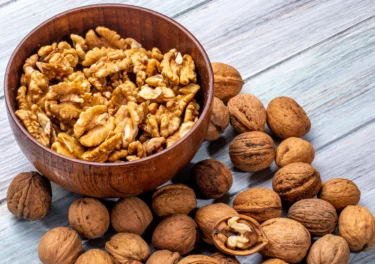
Walnut leaves have been used in traditional medicine. It may be a suitable remedy for itchy scalp. The leaves may be useful for external applications such as itchy scalp, dandruff, as an emollient (soothing agent), and to soothe itching in skin disorders3. A decoction of walnut leaves might be a beneficial remedy for itchy scalp. It is made by boiling dry walnut leaves on low heat for 15-20 minutes. Then strain the leaves and use the liquid for rinsing the scalp or add it to your bathwater.
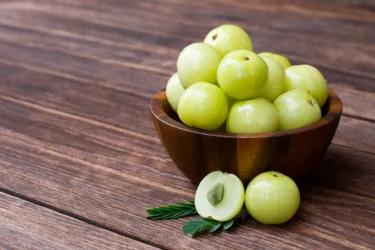
Amla, also called Indian gooseberry, is a popular Ayurvedic herb. Amla contains a vast array of antioxidants, vitamins and minerals. It may also have beneficial properties such as antimicrobial, anti-inflammatory activities and cooling effects. Amla oil, amla juice and dried amla may be used as a possible home remedy for itchy scalp. Amla oil may help reduce scalp irritation and other infections related to the scalp3. Amla powder may provide instant relief to your itchy scalp. Amla powder is made by grinding dried amla fruit. Make a thin paste by mixing this powder with some water. Then apply it to your scalp for 15-20 minutes and wash it off.
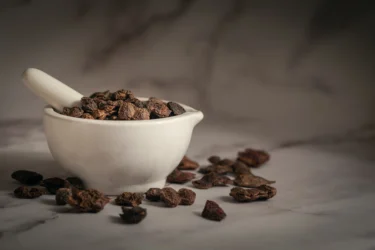
Shikakai has been used for managing dandruff, strengthening hair follicles, etc. It has a low pH value and may be useful for scalp and hair conditioning as well as cleansing. Shikakai powder may be a beneficial home remedy for itchy scalp. A paste made from shikakai powder using water can be applied to the scalp. It may act as a great conditioner and reduce the itch and dandruff3.
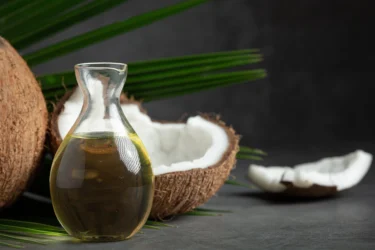
Coconut oil is a great source of antioxidants, vitamin E and K, minerals and lauric acid. It is believed that coconut may have cooling properties because of which it is used by people with Pitta Dosha. It may also have beneficial properties such as antioxidant, antiviral, antibacterial and antifungal properties. Coconut oil may be a good remedy for itchy scalp. It might be useful to fight dryness, reduce dandruff and eliminate scalp infections and fungus-forming units3. You may directly apply coconut oil to the affected regions of the scalp. Let it sit for some time and then rinse it off.
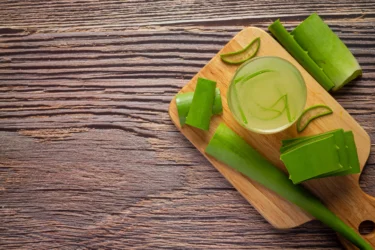
Aloe vera may also be considered one of the most useful home remedies for itchy scalp. Aloe is collected as a dried juice by cutting the base of the leaves. It may be a beneficial conditioner for hair and scalp. It may benefit in reducing the itching of the scalp and dandruff and may help condition the hair. The prominent benefiting component present in Aloe vera is called aloenin3. Aloe vera gel may be beneficial for itchy scalp. To make aloe vera gel take a leaf and remove the covering of the leaf. Next, scoop the gel with the help of a spoon, put it in a blender and blend it for a few seconds to make a frothy, liquefied gel. Finally, you can apply this gel to your scalp to relieve the itchy scalp.
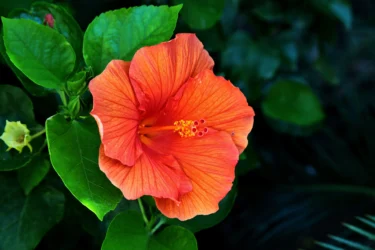
Hibiscus may be used as a home remedy for itchy scalp. It contains vitamins A and C and iron. It may have beneficial properties like antioxidant, antibacterial and anti-inflammatory properties. Hibiscus herbal preparations may be beneficial for itchy scalp. A herbal mask can be prepared using hibiscus flowers and leaves. It may condition your scalp and hair as well as reduce dandruff3.
Take 3 to 4 hibiscus leaves and one flower and grind them together to make a fine paste. You can mix it with any of these (yoghurt, aloe vera gel, almond oil, olive oil or coconut milk). Apply the paste to the scalp for an hour or more and rinse it off with water.
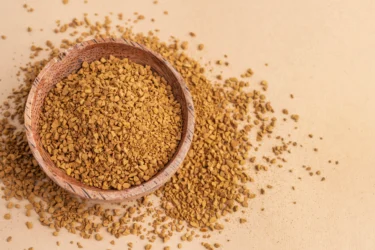
Fenugreek or methi may be a natural, secret ingredient for hair and scalp health. It contains potassium, iron, vitamin C, lecithin and proteins. It might reduce dandruff and may provide a soothing effect to the dry and itchy scalp3. Fenugreek paste may help manage the itchy scalp. To make methi paste, soak 1-2 tablespoons of methi seeds in water overnight. Next morning, grind these seeds into a fine paste using the same water. You can apply this paste to your dry, itchy scalp to reduce the itch.
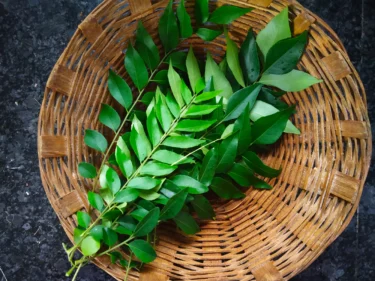
Curry leaves contain a high amount of minerals like iron and antioxidants such as vitamins C, A, E and folic acid. It may also have antibacterial properties that might help reduce scalp infection. Curry leaves may have a nourishing effect on both hair and scalp3.
Curry leaves paste may be beneficial for your itchy scalp. To make curry leaves paste, take a handful of curry leaves and mix them with yoghurt to achieve a paste consistency. Apply this paste to your scalp and allow it to rest for one hour. Then rinse thoroughly with cold water. Repeat this procedure 2 to 3 times a week for best results.
Also Read: Home Remedies For Hair Thinning
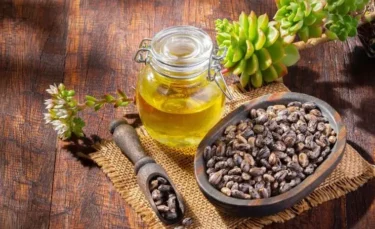
Castor oil may have antimicrobial, antifungal and anti-inflammatory properties. It contains ricin and resinoleic acid that might nourish the scalp and hair. It may also have the ability to enhance blood circulation. Castor oil might help combat dryness and dandruff, which would be beneficial for itchy scalp3.
Though studies show the benefits of the given herb and home remedies for itchy scalp conditions, these are insufficient. Therefore, there is a need for large-scale human studies to establish the true extent of the benefits of these home remedies on itchy scalp. Thus, these should only be used cautiously and never as a substitute for medical treatment.
Lemon juice is one of the most popular scalp itching home remedies. It has antibacterial properties that prevent the yeast Malassezia from causing dandruff. Also, its acidic properties help soften the already existing flakes and calm down the inflammation on the scalp.
Dr. M.G. Kartheeka, MBBS, MD(Pediatrics)
Also Read: How To Increase Melanin In Hair Naturally
An itchy scalp might be indicative of serious conditions, so it is important to treat it properly. Therefore, people should consult a doctor if the conditions mentioned below are seen.
You must not rely on home remedies alone for the treatment of itchy scalp. You should always consult a dermatologist or any other qualified doctor if the symptoms do not improve with home remedies.
Also Read: Effective Home Remedies For Dry Scalp
Itchy scalp is medically termed Scalp pruritus. It is recognised by constant irritation and a distressing feeling on the scalp. Itchy scalp is a challenge to diagnose medically. Various factors such as the presence of lice in the head, fungal infection, dandruff, inflammation of the scalp and skin diseases like psoriasis and seborrheic dermatitis cause itchy scalp. However, there are several home remedies for itchy scalp that you can use. Various herbs, including amla, walnut, shikakai, coconut oil, castor oil, neem, tulsi, aloe vera, hibiscus, fenugreek, curry leaves, etc. might be beneficial home remedies for itchy scalp. However, if the condition persists for longer, seek medical attention to avoid further complications.
Also Read: Effective Home Remedies for Silky Hair
The causes of the itchy scalp, such as head lice, are difficult to manage because of the easy spread of head lice. The spread is prevented by avoiding sharing hairbrushes and combs. For chronic conditions such as psoriasis, dandruff or seborrheic dermatitis, a regular doctor’s appointment and treatments according to the conditions are required. A medicated shampoo prescribed by a pharmacist might help with this. Maintaining personal hygiene is essential for treating tinea infection1.
According to doctor’s recommendations, medicated anti-dandruff shampoos, antifungal medicine for tinea capitis, moisturising creams and ointments, head lice treatment, corticosteroid creams for seborrheic dermatitis and psoriasis medications are few of the treatment options for itchy scalp1. However, people should use these treatments only after consultation with a doctor and if prescribed.
Thyme might be beneficial for reducing dandruff and may be used in scalp rub3. However, prior to using thyme as a home remedy for itchy scalp, people should consult a doctor.
Tulsi contains the antioxidant vitamin K. It may be an essential herb for eliminating bacterial and fungal infections, which may help with treating an itchy scalp3. However, using Tulsi to treat an itchy scalp is not recommended without consulting a doctor.
Yes. Flaxseed is a rich source of antioxidants and fatty acids. It may help remove the dead cells from the scalp. Applying flaxseed paste to your hair and scalp may act as a good moisturiser3. However, people should not use flaxseeds to self-medicate without consulting a physician.
Neem oil or neem extract may be used for treating psoriasis and dandruff. However, it is important to refrain from using neem without consulting a doctor.
1. Health direct [Internet]. Itchy scalp. 2020 [cited 2022 Jul 11]. Available from: https://www.healthdirect.gov.au/itchy-scalp
2. Bin Saif G, Ericson M, Yosipovitch G. The Itchy scalp – scratching for an explanation. Experimen dermato. 2011;20(12):968. Available from: https://www.ncbi.nlm.nih.gov/pmc/articles/PMC3233984/pdf/nihms-331222.pdf
3. Kolekar Y, Tamboli, Firoj, More H, Mulani S, Mali N. Medicinal plants used in cosmetics for skin and hair care. Intern J of Pharmaceu Chem and Analy. 2021;8(2):36–40. Available from: https://www.ijpca.org/html-article/14382
4. Cleveland Clinic [Internet]. 5 Causes (and Fixes) for Itchy Scalp. 2020 [cited 2022 Jul 20]. Available from: https://health.clevelandclinic.org/itchy-scalp-5-common-problems-and-fixes/
Disclaimer: The information provided here is for educational/awareness purposes only and is not intended to be a substitute for medical treatment by a healthcare professional and should not be relied upon to diagnose or treat any medical condition. The reader should consult a registered medical practitioner to determine the appropriateness of the information and before consuming any medication. PharmEasy does not provide any guarantee or warranty (express or implied) regarding the accuracy, adequacy, completeness, legality, reliability or usefulness of the information; and disclaims any liability arising thereof.
Links and product recommendations in the information provided here are advertisements of third-party products available on the website. PharmEasy does not make any representation on the accuracy or suitability of such products/services. Advertisements do not influence the editorial decisions or content. The information in this blog is subject to change without notice. The authors and administrators reserve the right to modify, add, or remove content without notification. It is your responsibility to review this disclaimer regularly for any changes.
Our elders are usually the ones complaining about knee pain, but it is not necessarily limited to them. Knee joint pain may be experienced by in anyone and at any age. As we grow older, we might experience joint pains due to tissue degeneration. Specifically, knee joint pain might occur due to injury, joint overuse or a condition of the joints known as arthritis. Your doctor will examine you thoroughly, run a few tests and diagnose the cause of your knee pain. They will then decide the treatment plan based on the severity of your condition. The treatment options may range from simple home remedies, exercises, medications and minimally invasive procedures to surgery1. However, there might be a few simple helpful tips and tricks that might ease your knee pain. Let’s look at these in detail.
You can experience pain in the knee joint because of following conditions:
Knee pain is itself a symptom that can occur due to the above-mentioned causes. However, you may experience the following symptoms of joint pain along with knee pain:
Kindly ensure that you consult a doctor and do not self-medicate.
The scientific community is always looking for safer ways to treat diseases, which is why natural products such as Guduchi, Masha, Linseed, etc. are being researched extensively. However, more research is required to ensure their safety in humans. Therefore, the following home remedies for knee joint pain might be helpful along with the treatment your doctor has advised.
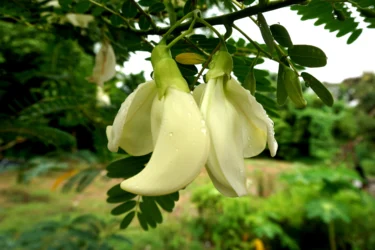
Agastya is also known as West Indian pea in English, Agatha in Hindi, Avisa in Telugu, Bak in Bengali and Agathiyo in Gujarati. It might be helpful to relieve knee pain. Application of the paste made from the root and bark on the surface of the knee may have an alleviating effect on the pain. However, more research is required to prove such effects. Kindly consult a doctor before starting any medication3.
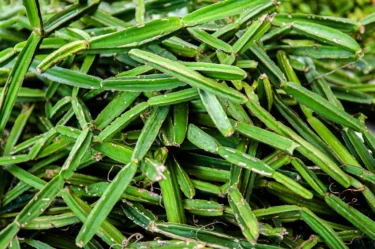
Hadjod or Asthisamharaka is the Hindi name of the Eldt grape. It is also referred to as the Devil’s backbone or Adamant creeper. Its scientific name is Cissus quadrangularis and it belongs to the family Vitaceae. It might help with knee pain and other joint pains. Your Ayurvedic physician might advise you to fry the stem of hadjod in ghee and consume it with milk. This might be helpful in fractures and in osteoarthritis. However, there is need for further research to prove such claims3.
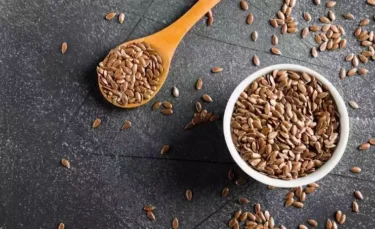
Atasi, which is known as linseed in English, might help with knee pain due to arthritis. Commonly, your doctor might suggest that you first take a few seeds of linseed and soak it in sour buttermilk. A fine paste is to be made from this and applied it on the affected knee(s). However, more research is required to know about its efficacy and safety3. You should use it as per the prescription of your Ayurvedic doctor. Do not self-medicate.

Guduchi, or Tinospora cardifolia is also known as Giloe or Gurcha (Hindi), Seendal (Tamil), Indian Tinospora or Heartleaved moonseed. It belongs to the family Menispermaceae. It might be helpful in arthritic pain. Your doctor might recommend drinking guduchi juice for your arthritic knee joint pain. However, more research is required to prove these effects. Therefore, do not self-medicate. Kindly consult a doctor3.
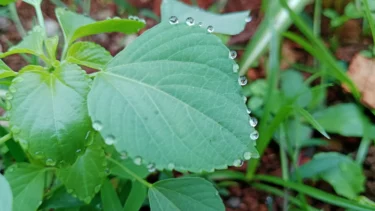
This herb is known by different names in different parts of India. In Hindi it is called Kuppi or Aamaabhaaji, Indramaris in Oriya, Muktajhuri in Bengali, etc. It belongs to the family Euphorbiacea and is called Acalypha indica also commonly known as Indian Acalypa. The leaves of this plant might be helpful with the knee pain mainly associated with arthritis. Your doctor might advise that you fry these leaves in ginger oil and use that oil for application on the painful joints. However, more research is required3.
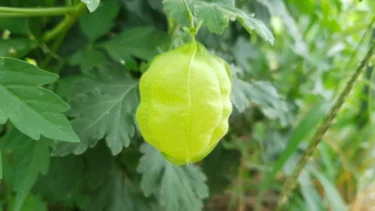
Indravalli has a variety of names like Fatphati (Marathi), Vekkudutiga (Telugu), Ulinna (Malayalam), Bodha (Gujarati) and Ballon vine or Heart’s pea (English). This leaf might prove to be effective in treatment of knee pain and other arthritic pain. It is used by cooking the leaves in tila oil and then using the oil for massaging the painful joints. However, there is a requirement for more research on this subject3.
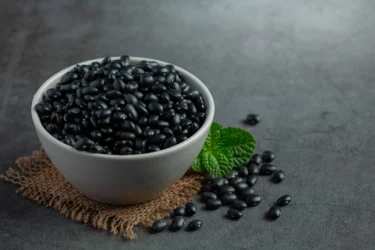
It belongs to the family Fabaceae and is known as Teramus labialis scientifically. It is also known as Jangli urad, Mashoni and Mashavan among many other names. A paste is made by adding black gram seed powder to few drops of sesame oil and applied to the painful knee joint; this might be helpful for joint pain. This might help to reduce the swelling and pain. However, more research is required to prove these effects. Therefore, please consult an Ayurvedic physician for the same3.

Your doctor might recommend some of these solutions for your knee pain:
Please consult a doctor before following any of these natural remedies for knee pain. Kindly do not self-medicate.
More human studies are needed to establish the true extent of the benefits of these home remedies in knee joint pain relief. Thus, these should only be followed with caution and never as a substitute for medical treatment.
For Knee pain due to a minor injury or from arthritis symptoms, “RICE” i.e., Rest, ice, compression, and elevation (RICE) is known to be of some benefit. Give your knee some rest, apply ice to reduce swelling, wear a compressive bandage, and keep your knee elevated.
Dr. Ashish Bajaj, M.B.B.S., M.D. in Clinical Pharmacology and Toxicology
Also Read: Tingling in Hands: Exploring Causes and Potential Remedies
You should always seek medical help when you are doubtful and are experiencing symptoms of knee pain. You should especially get a check-up done under the following circumstances:
Overweight and obesity can put additional pressure on your knee joints. According to the Arthritis Foundation, an additional 10 pounds of weight can add between 15 and 50 pounds of pressure to a joint4. The foundation also notes the links between obesity and inflammation. For example, people with a high body mass index (BMI) have a greater chance of developing OA of the hand than those with a low BMI.
Dr. M.G. Kartheeka, MBBS, MD(Pediatrics)
Also Read: Natural Home Remedies for Arthritis
Knee pain can affect anyone, especially in the older age group. It might occur mainly due to injury, arthritis, or overuse. The treatment options vary and depend on the severity of your condition. It is at the discretion of your doctor based on your consultation. There are few natural herbs that might be useful for knee pain Some of them are masha, linseed, indravalli, hadjod, etc. However, more research is required to prove the effectiveness and safety of these herbs. Please ensure that you consult a doctor and do not self-medicate.
Also Read: Best Home Remedies for Cracked Heel
Natural herbs that might help with knee pain are linseed, masha, indravalli, hadjod, etc. However, there is not enough scientific evidence for the use of these home remedies for knee joint pain. More research is required to prove the effect of these herbs. Therefore, please consult a doctor and do not self-medicate3.
Linseed might help with arthritic knee pain. However, more research is required to prove such effects. Therefore, please consult a doctor before using linseed for knee pain. Kindly do not self-medicate3.
There are no reports claiming the possible positive effects of coconut oil for knee pain. There is need for more research regarding the same.
There are a few herbs like linseed, guduchi, hadjod, etc. which might potentially help with knee pain. There is not enough research to prove the effectiveness of the mentioned knee pain home remedies Please consult a doctor for treatment of knee pain and refrain from using home remedies without consultation3.
Disclaimer: The information provided here is for educational/awareness purposes only and is not intended to be a substitute for medical treatment by a healthcare professional and should not be relied upon to diagnose or treat any medical condition. The reader should consult a registered medical practitioner to determine the appropriateness of the information and before consuming any medication. PharmEasy does not provide any guarantee or warranty (express or implied) regarding the accuracy, adequacy, completeness, legality, reliability or usefulness of the information; and disclaims any liability arising thereof.
Links and product recommendations in the information provided here are advertisements of third-party products available on the website. PharmEasy does not make any representation on the accuracy or suitability of such products/services. Advertisements do not influence the editorial decisions or content. The information in this blog is subject to change without notice. The authors and administrators reserve the right to modify, add, or remove content without notification. It is your responsibility to review this disclaimer regularly for any changes.
Have you experienced pain in or around your head? A pain that feels like a tight band, or a throbbing pain; if yes, don’t worry. We all experience headaches at various times in our lives. Headaches are the most common form of pain and can make you miss a day at work or school1.
A headache can have many causes, and it is important to understand the cause to treat it. Headaches are usually not related to any serious illness. However, if you experience headaches along with other symptoms, it may be an indication of a serious condition2. In such cases, it is important that you reach out to your healthcare provider for a proper diagnosis.
However, for less severe headaches, you can use some home remedies. Continue reading to know more about the possible home remedies!
Did you know?
When the pain receptors in your head or neck are stimulated, you might experience a headache. Many factors can stimulate the pain receptors, such as
Pain in any part of your head can present in different ways depending upon the type of headache.
If you suffer from a persistent or recurring headache, do consult a physician as it can be an early warning sign of more complicated and serious health issues such as stroke, infection, or high blood pressure, especially if it is associated with breathing difficulties, stiffness in the neck or skin rashes.
Dr. Ashish Bajaj, M.B.B.S., M.D. in Clinical Pharmacology and Toxicology
Here are some remedies for headache you can try at home.
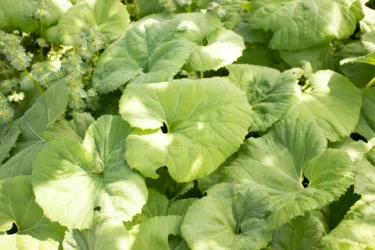
Butterbur has a long history of use in fever, wound healing, and muscle spasms. Butterbur root might also be recommended for headaches and migraines. However, butterbur may be associated with side effects like gas and other stomach problems. Also, the use of butterbur should be strictly avoided during pregnancy3. You may take butterbur powder with a glass of water to reduce the intensity of your headache.

Caffeine, in the form of coffee, tea and guarana berries, may be used to relieve migraines and headaches. The analgesic (pain relieving) properties of caffeine have been observed in lab studies. However, caffeine should be used cautiously as it can induce headaches in some people as indicated by a study3. You may use guarana powder to make tea by boiling some powder in a cup of water. Then, you can sip on this tea to relieve headaches.
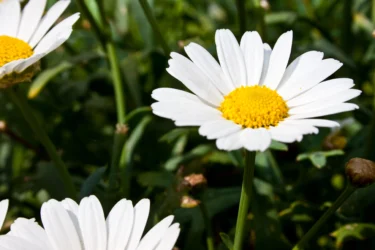
Chamomile has a history of being used for relieving headaches. However, there is insufficient scientific evidence supporting its use. You can take chamomile in the form of tea. Boil some chamomile in water. You can also add honey for taste. You may also inhale chamomile oil using a vaporizer to get relief3.

Studies3 supporting the use of peppermint in headaches are insufficient. Inhaling the aroma of peppermint or peppermint oil may help with headaches according to some studies. According to other studies, peppermint tea might help. To make peppermint tea, boil few peppermint leaves in water and let it steep in for a while. You can strain this mixture into a cup and add honey for taste. Your peppermint tea is ready to drink. Sipping this peppermint tea may help decrease your headache.

Making some lifestyle changes can help you manage headaches better. You can start with these practices to help you get rid of headaches.

Foods, drinks or drugs that may bring out a headache are triggers. You can avoid these triggers to help you get rid of headaches. However, you will need to keep track of your headaches to identify the triggers that might be causing your headaches2.

Stress is an important factor responsible for headaches. You can try some relaxation techniques to reduce stress and the headaches associated with it. There are many relaxation techniques, for example, yoga, meditation or massage. You can also try to relax in a warm bath2. Choose a technique that works best for you.

Exhaustion and long working hours are major causes for headaches. To make the best use of short breaksand improve your efficiency, you can try lying down in a quiet and dark room and catch up on some sleep2,4. Sleep is a good way to relax, regain strength and feel refreshed when you wake up.
Though studies show the benefits of the given herbs and home remedies for headaches, these are insufficient. Therefore, there is a need for large-scale human studies to establish the true extent of the benefits of these home remedies on human health. Thus, these should only be taken cautiously and never as a substitute for medical treatment.
Patients should be educated to become more aware of their headache symptoms and triggers. Interventions should be clearly explained to patients.
Dr. M.G. Kartheeka, MBBS, MD(Pediatrics)
You need to seek medical help from a healthcare professional if you experience any of these symptoms along with your headache.
Contact your healthcare provider if you are getting headaches regularly2.
You must not rely on home remedies alone to treat headaches. Instead, you should consult a qualified doctor for advice on your condition if the symptoms do not improve with home remedies.
The role of over-the-counter analgesics in medication overuse headaches must be explained to patients. Patients with all types of primary headaches have the potential to overuse analgesics. They should be counseled on the potential for frequent use of these medications to worsen the intensity and frequency of headaches.
Dr. M.G. Kartheeka, MBBS, MD(Pediatrics)
Also Read: Headaches During Pregnancy: Causes, Remedies, and When To Seek Help
Headaches are a common occurrence and usually don’t signify anything serious unless accompanied with other symptoms. However, it can make life difficult by negatively affecting your ability to focus on work or any other tasks. You can use some home remedies to relieve headaches. Natural remedies like tea, coffee, chamomile and butterbur can be used to relieve headaches. However, you are advised not to solely depend on home remedies for headache treatment and consult your healthcare professional. It is important to find the cause of your headache to treat it properly.
I remember a case where one middle age patient ignored his headache and was getting selfmedicated for alleviating the symptom ,he eventually suffered from stroke due to undiagnosed hypertension (which was the cause of his headache).Whenever someone is having headache especially in people above middle age they should visit their physician and get themselves checked so that some undue severe complication can be prevented.
Dr. Nikhil Yadav, MBBS MD, CCEBDM
Some natural remedies for headaches include coffee, tea, chamomile, and butterbur. You can also do a few relaxation techniques, such as yoga or meditation. Avoiding the triggers that might be causing the headache is another way to manage it2,3. If the home remedies don’t help, you can talk to your healthcare provider. Don’t rely on home remedies alone for headache treatment.
The best remedy for headaches depends on the cause of your headache. A headache caused by stress is best treated by stress management. Lifestyle changes might also help, such as proper diet and exercise. You can take help from your healthcare provider to understand the cause of your headache4,5.
Evidence suggests that caffeine might help manage headaches and migraines. However, caffeine could also induce headaches in some people. Therefore, you need to exercise caution3. The best cure will depend on the cause of headache. A doctor may help you with the diagnosis.
Making lifestyle changes like proper diet, drinking plenty of water, and regular exercise may help with the long-term management of headaches. Avoiding triggers that might cause a headache is another way to prevent it. Some common triggers for headaches are:
> Alcohol
> Stress
> Caffeine
> Too much or lack of sleep
> Hormonal changes in women
> Bright light
> Poor working conditions4
1. MedlinePlus. Headache [Internet]. [cited 2022 Jul 13]. Available from: https://medlineplus.gov/headache.html
2. Headache [Internet]. [cited 2022 Jul 13]. Available from: https://www.healthywa.wa.gov.au/Articles/F_I/Headache
3. Levin M. Herbal treatment of headache. Headache [Internet]. 2012 [cited 2022 Jul 13];52 Suppl 2:76–80. Available from: https://pubmed.ncbi.nlm.nih.gov/23030536/
4. Healthdirect. Headaches – types, causes, migraines, treatment, prevention. [Internet]. [cited 2022 Jul 13]. Available from: https://www.healthdirect.gov.au/headaches
5. Better Health Channel. Headache [Internet]. [cited 2022 Jul 13]. Available from: https://www.betterhealth.vic.gov.au/health/conditionsandtreatments/headache#treatment-for-headaches
Disclaimer: The information provided here is for educational/awareness purposes only and is not intended to be a substitute for medical treatment by a healthcare professional and should not be relied upon to diagnose or treat any medical condition. The reader should consult a registered medical practitioner to determine the appropriateness of the information and before consuming any medication. PharmEasy does not provide any guarantee or warranty (express or implied) regarding the accuracy, adequacy, completeness, legality, reliability or usefulness of the information; and disclaims any liability arising thereof.
Links and product recommendations in the information provided here are advertisements of third-party products available on the website. PharmEasy does not make any representation on the accuracy or suitability of such products/services. Advertisements do not influence the editorial decisions or content. The information in this blog is subject to change without notice. The authors and administrators reserve the right to modify, add, or remove content without notification. It is your responsibility to review this disclaimer regularly for any changes.
Next Page »